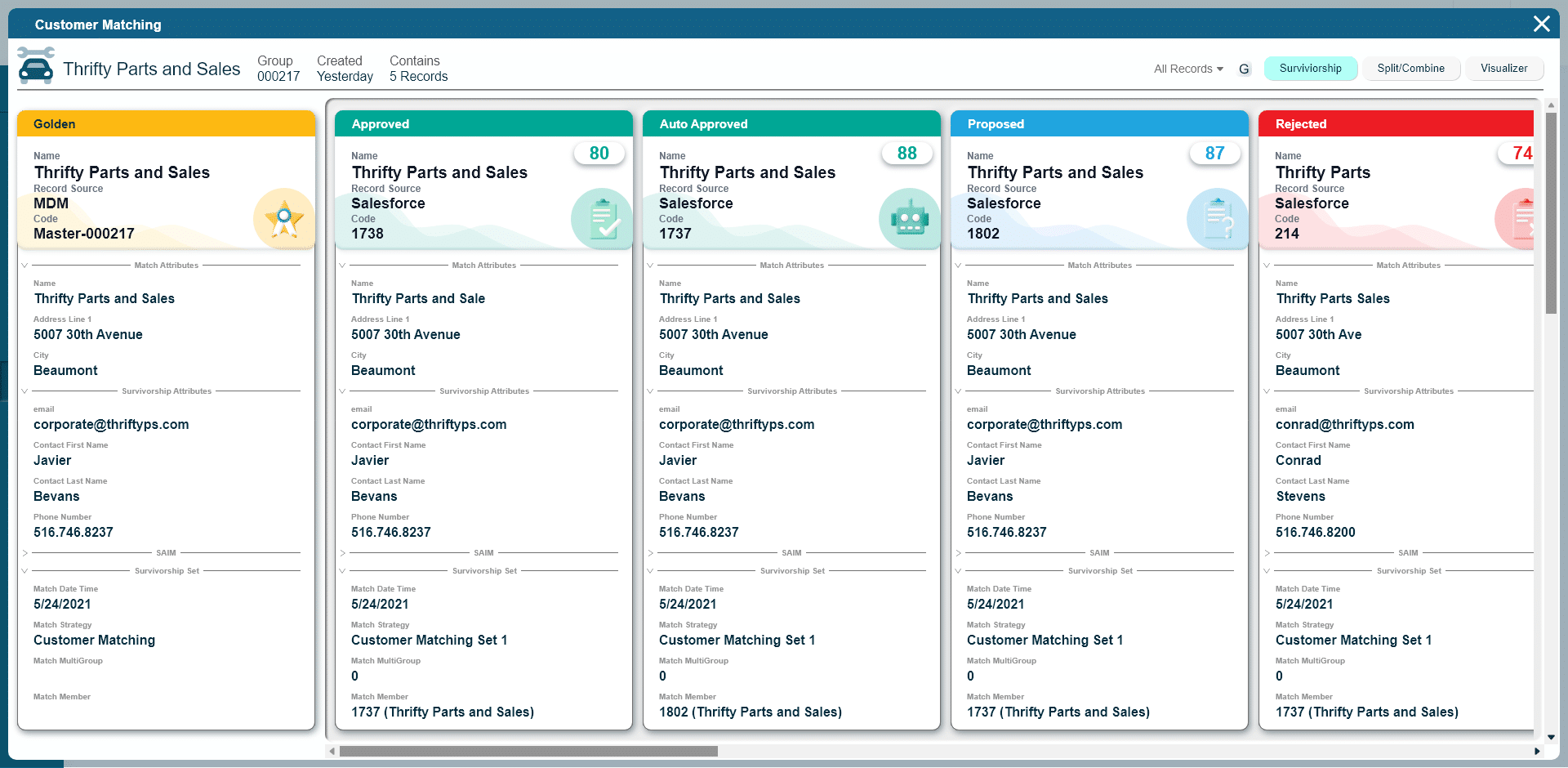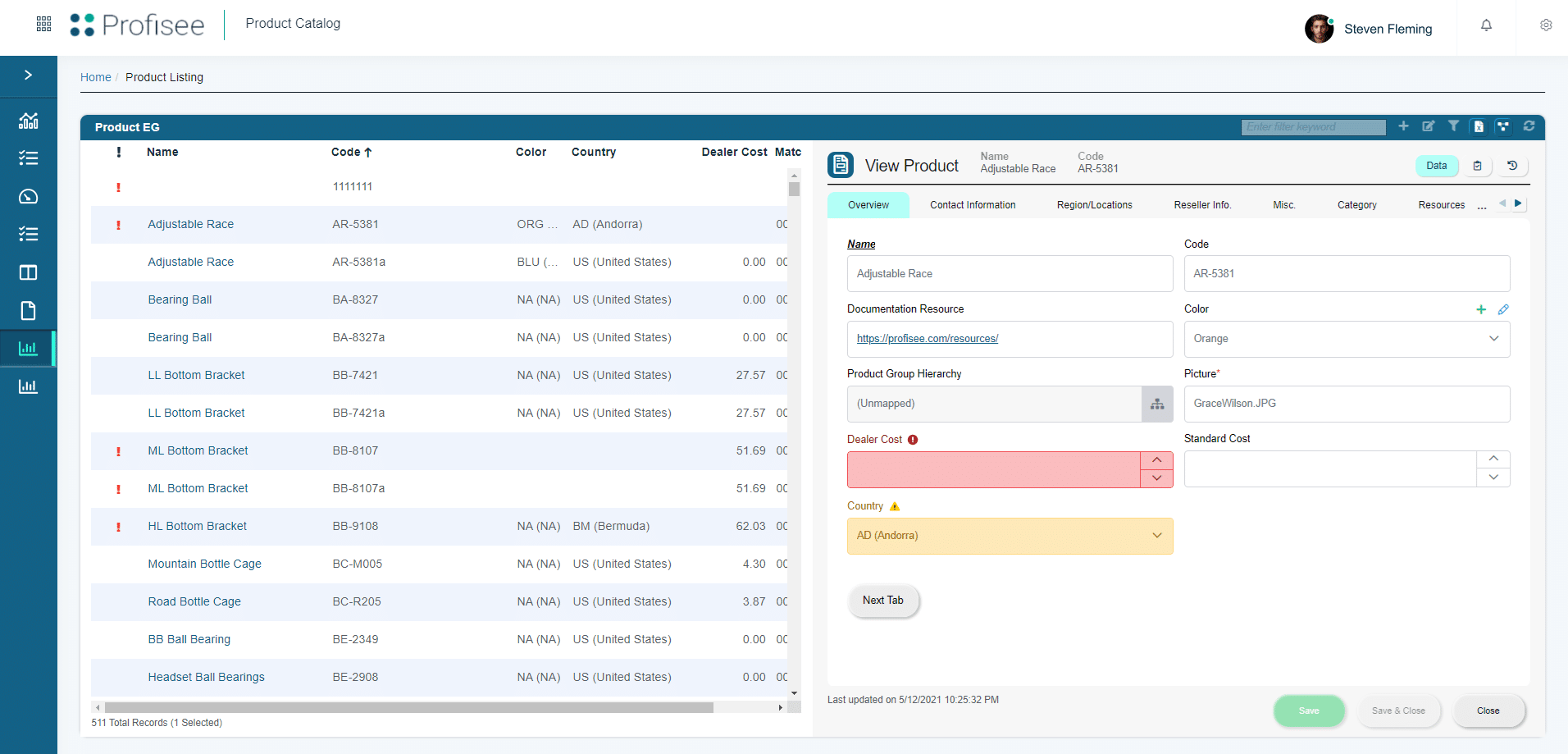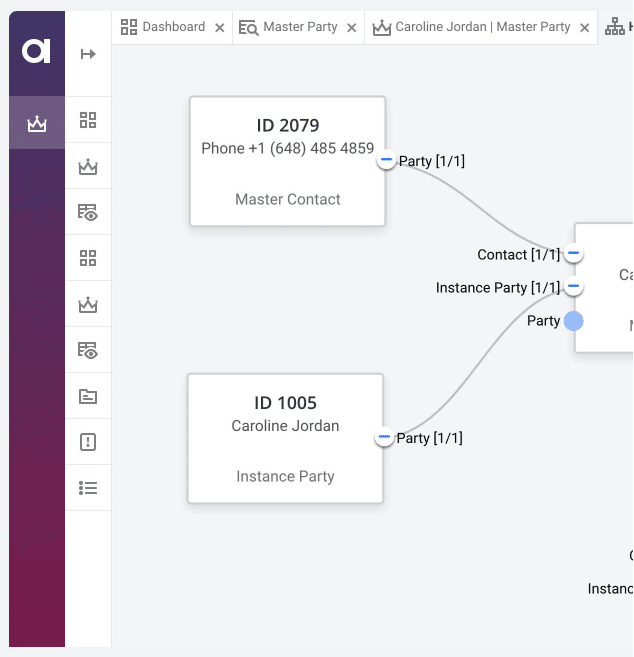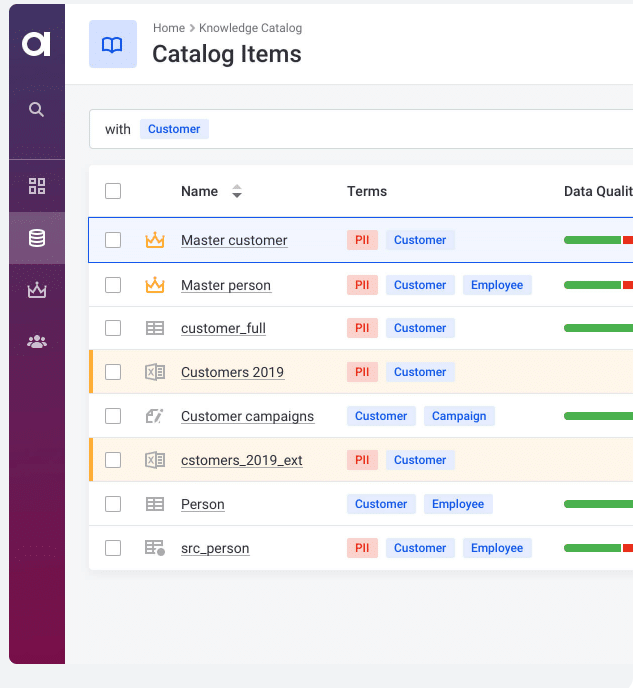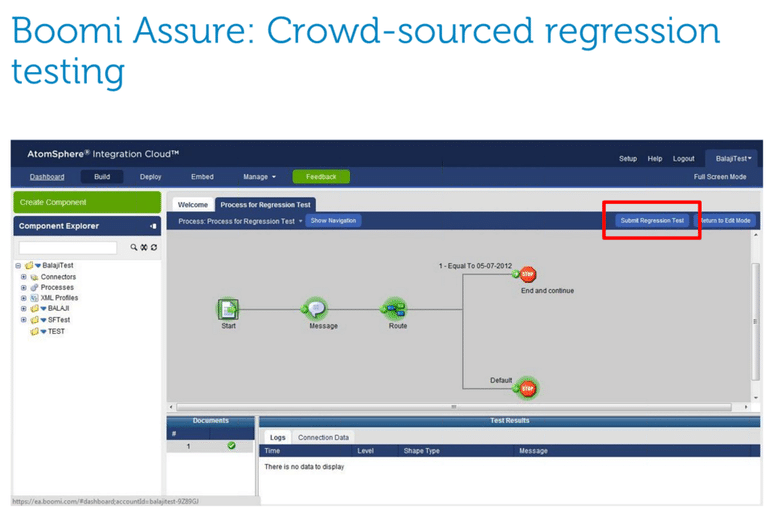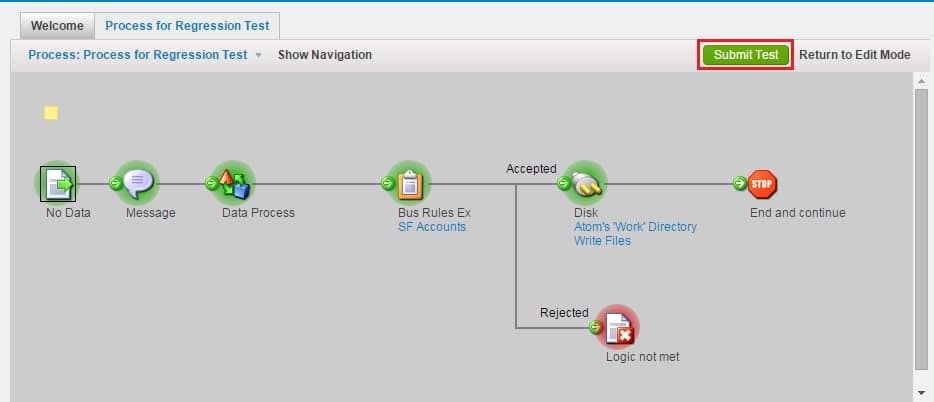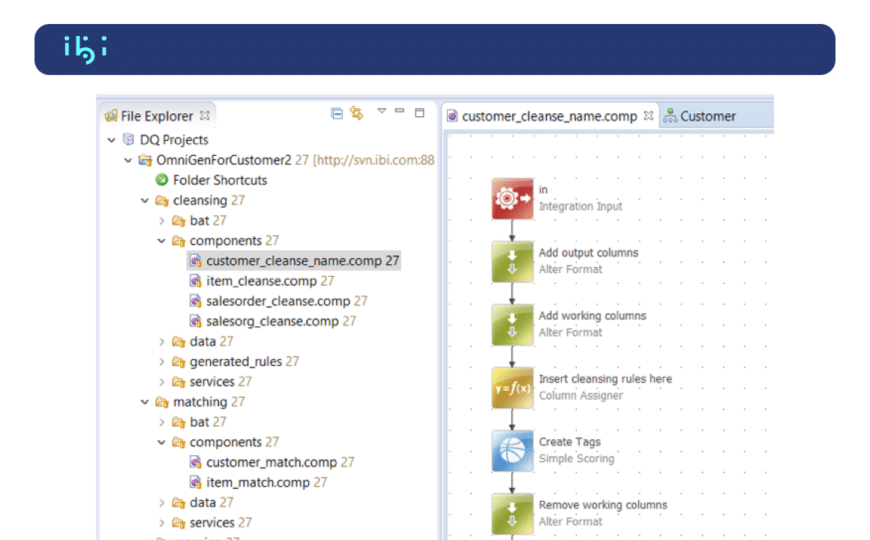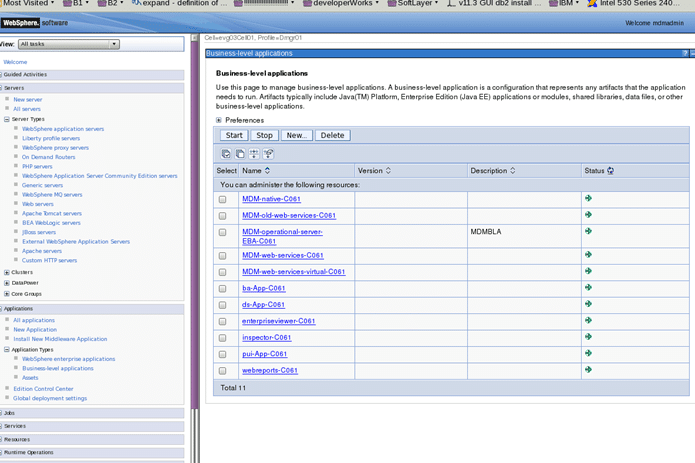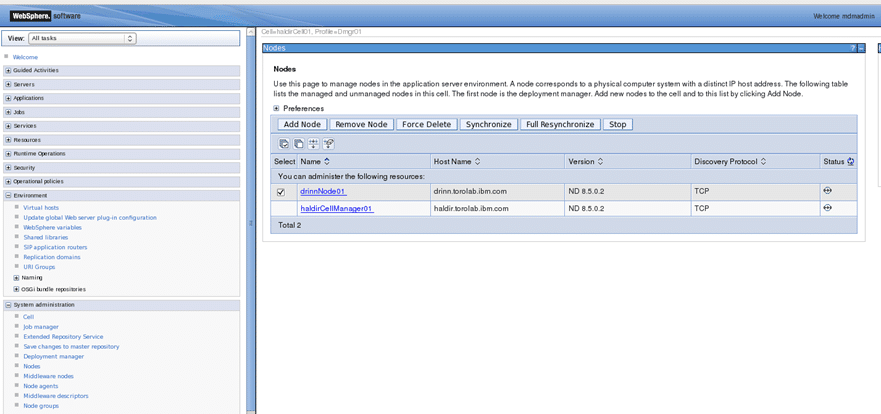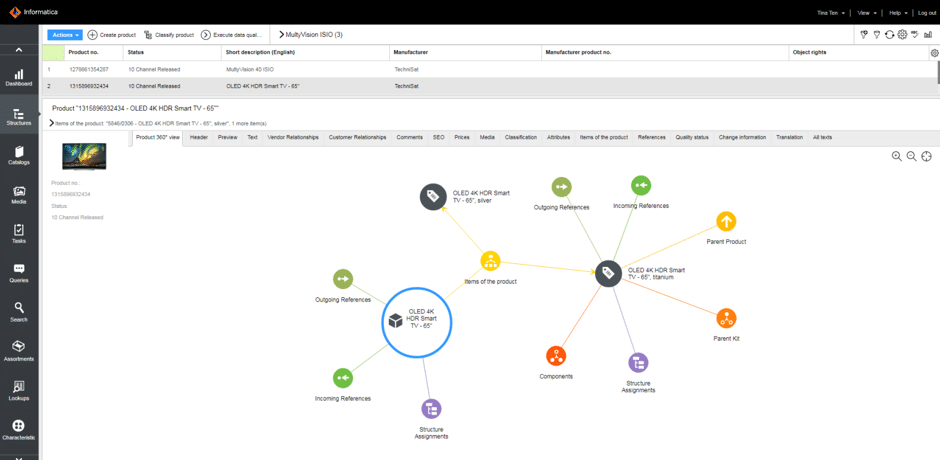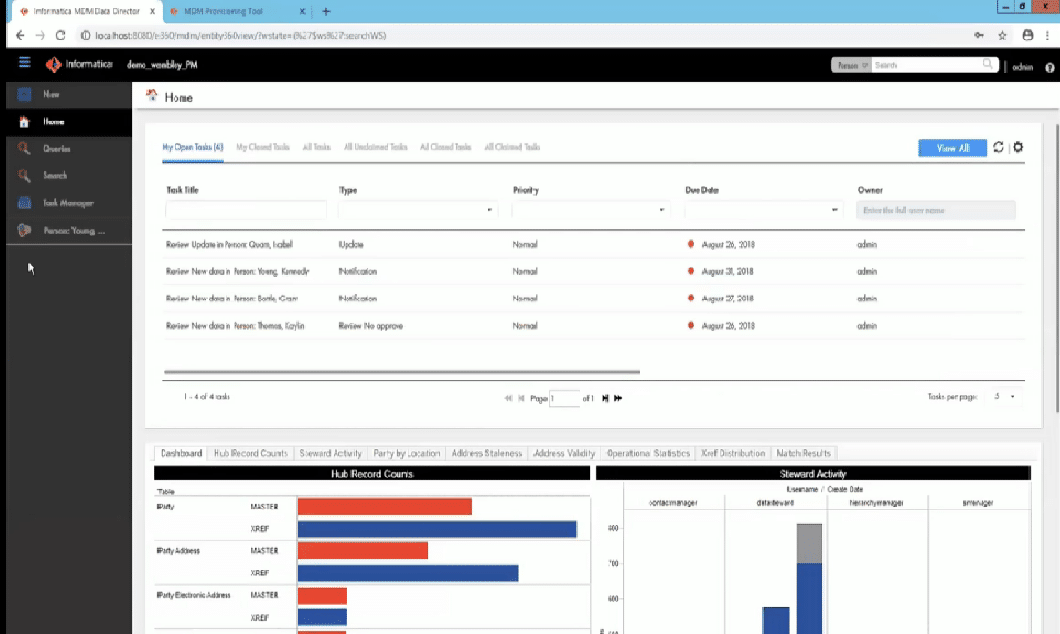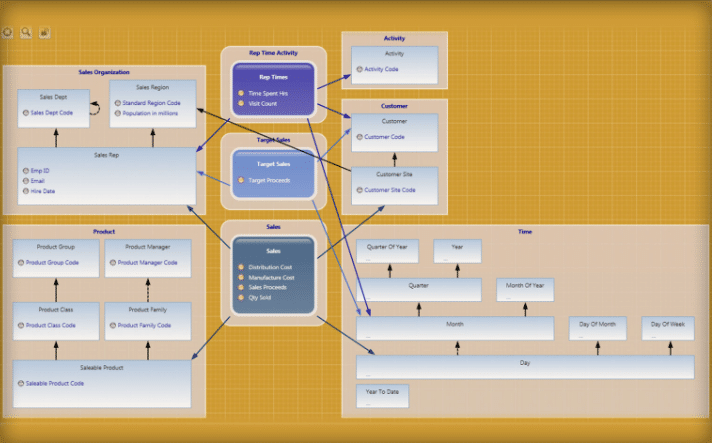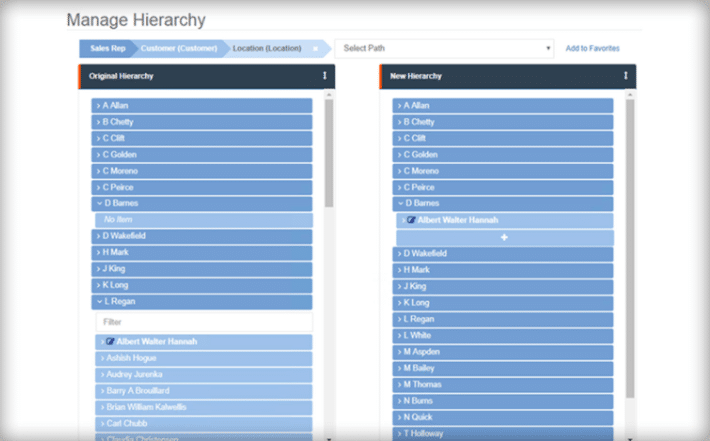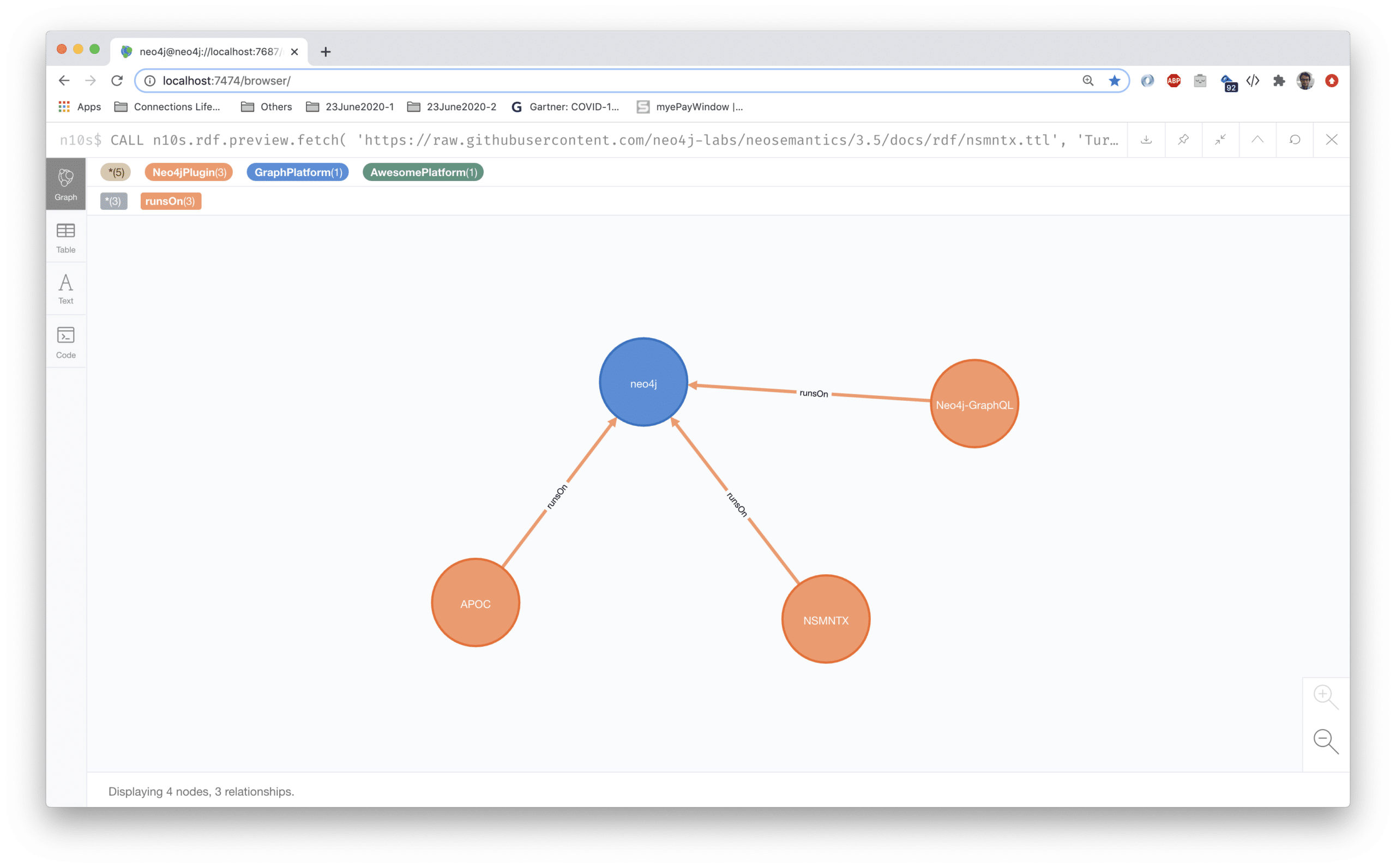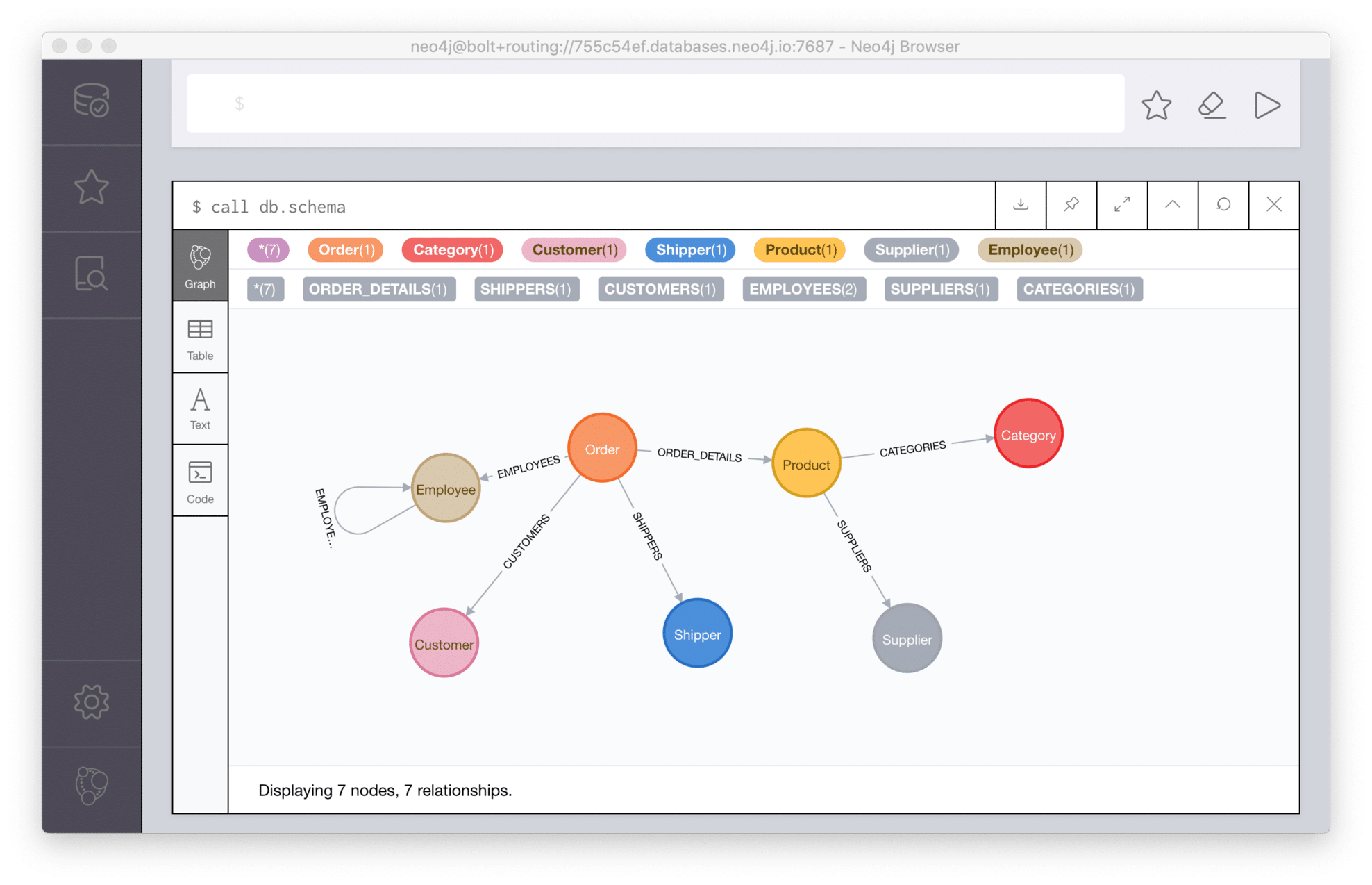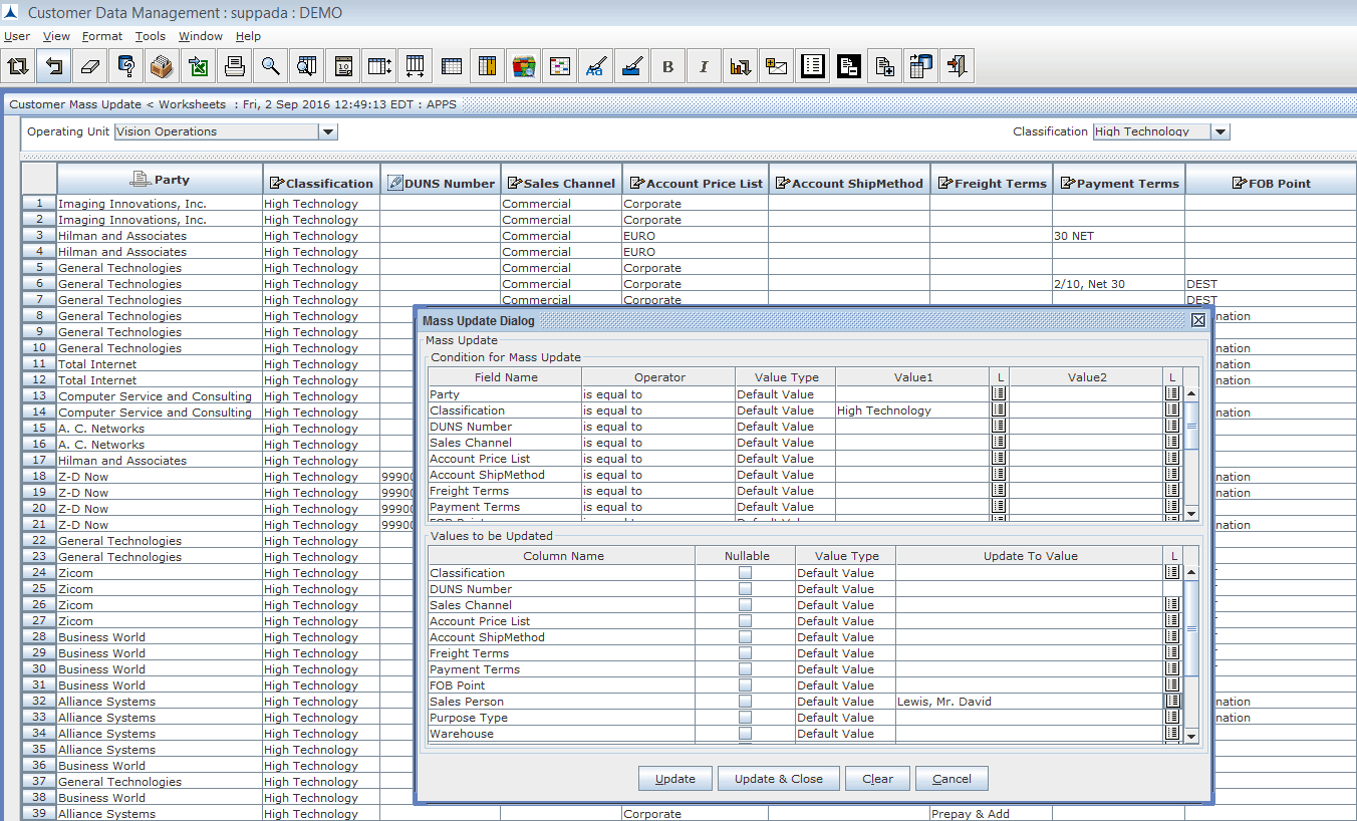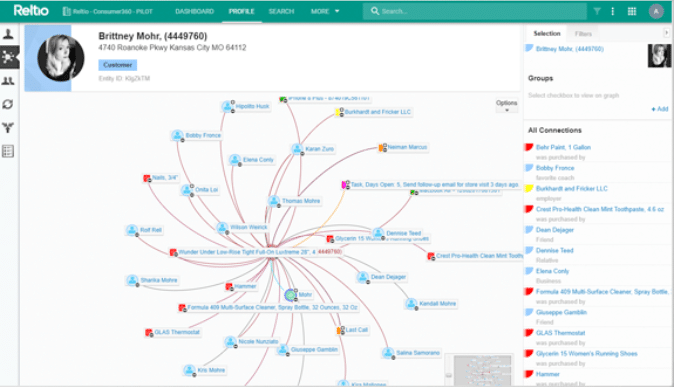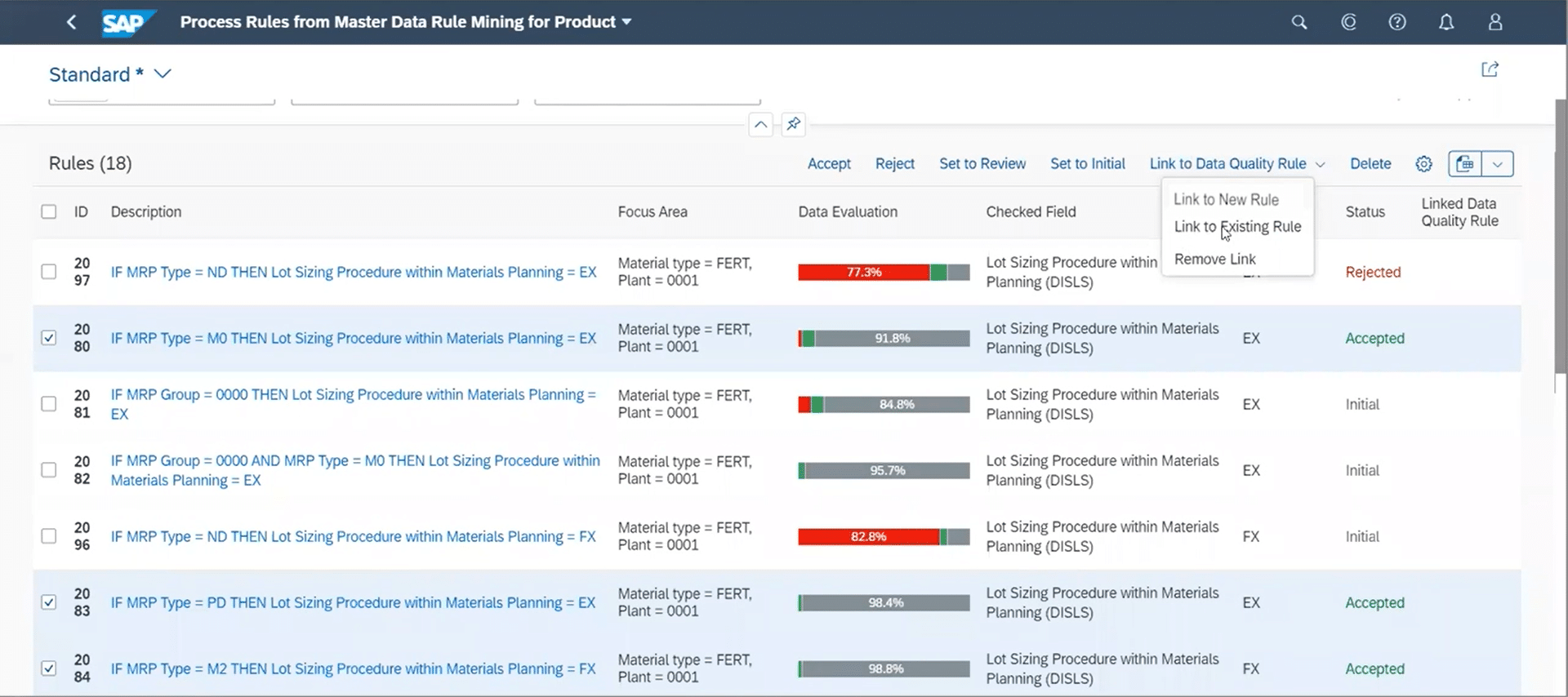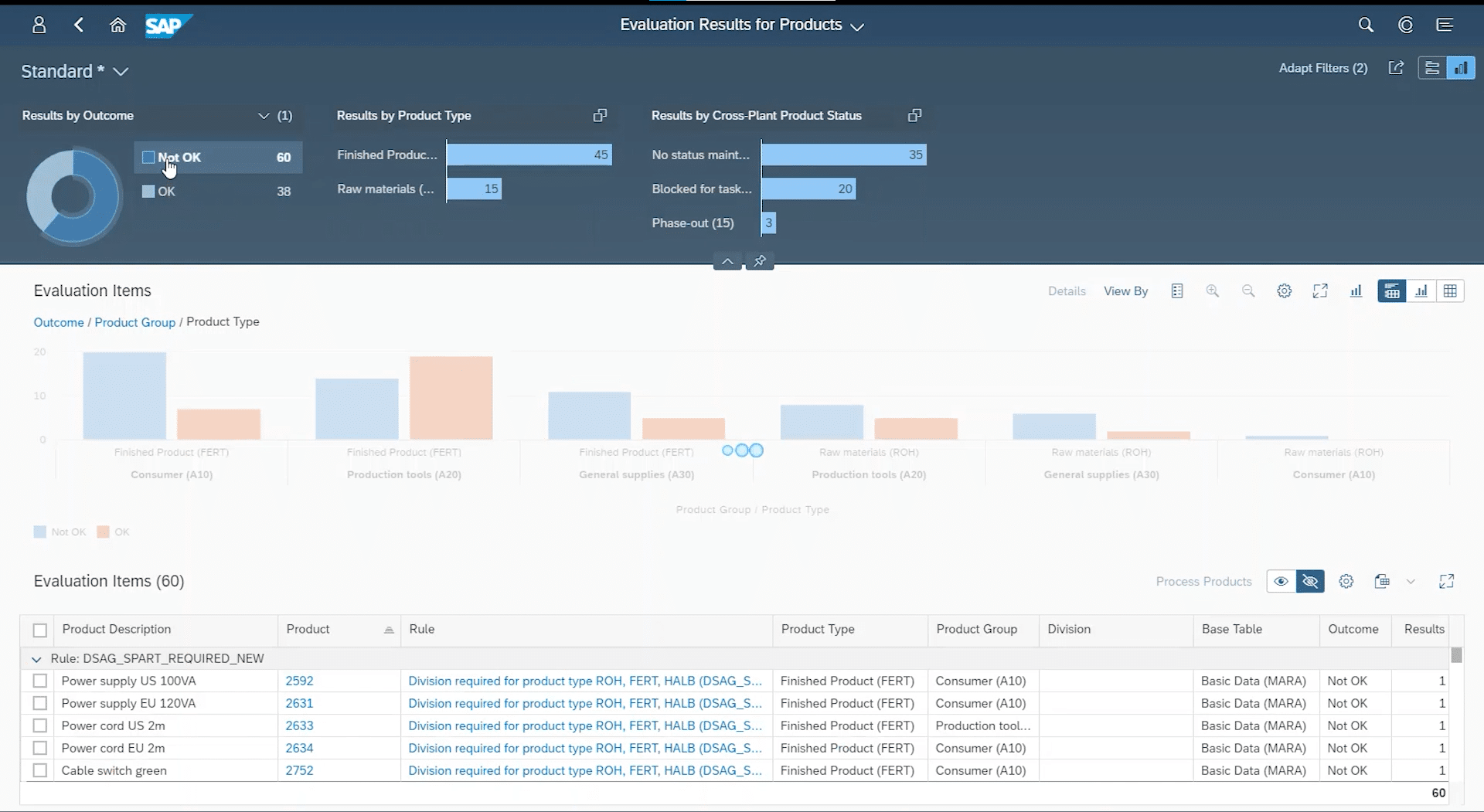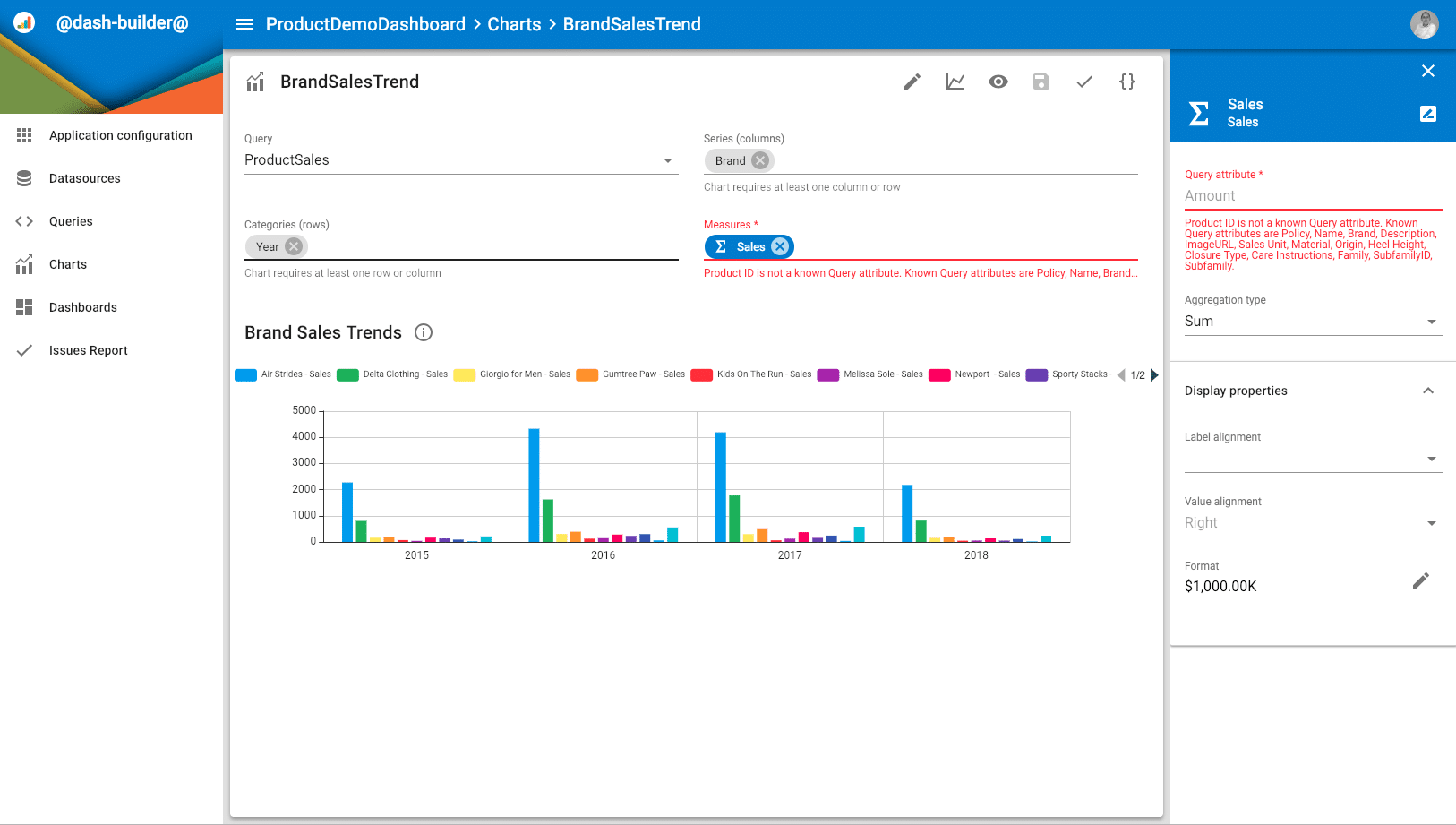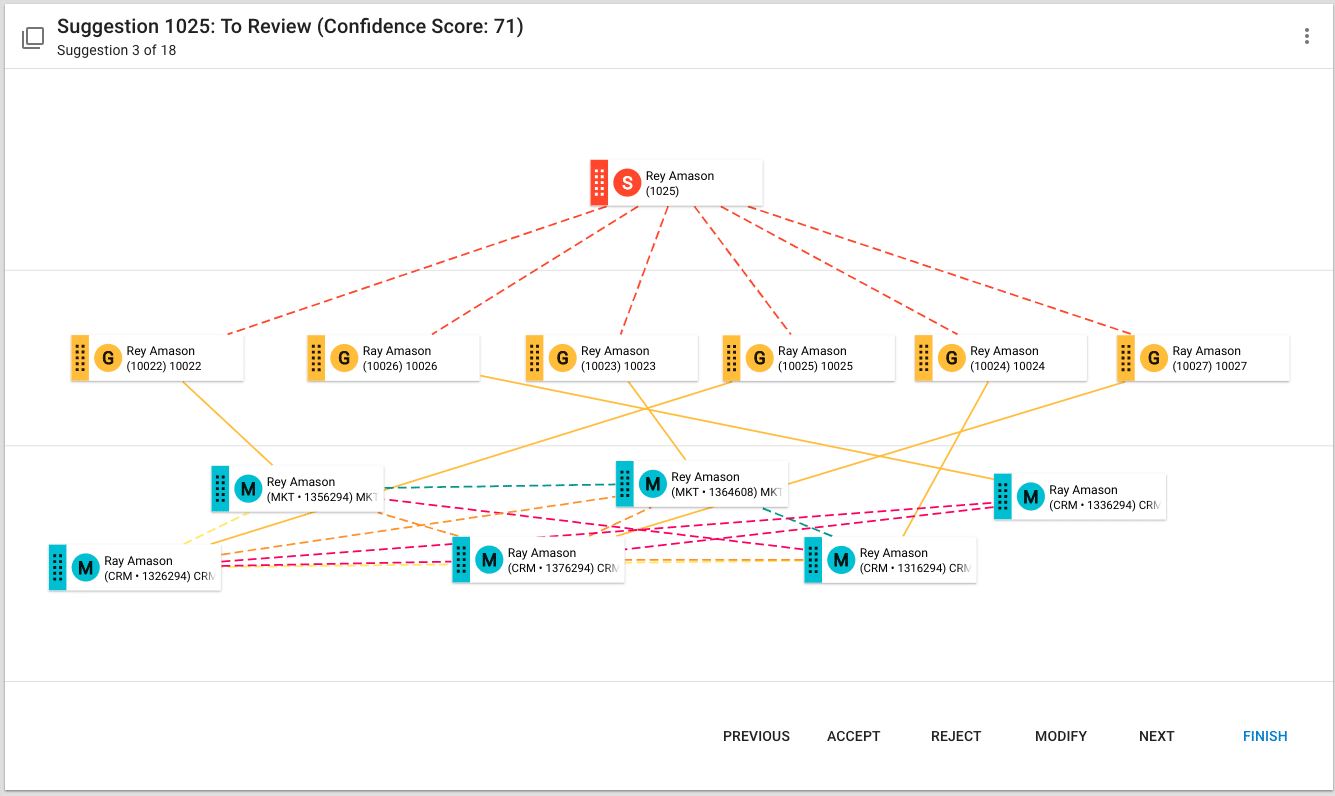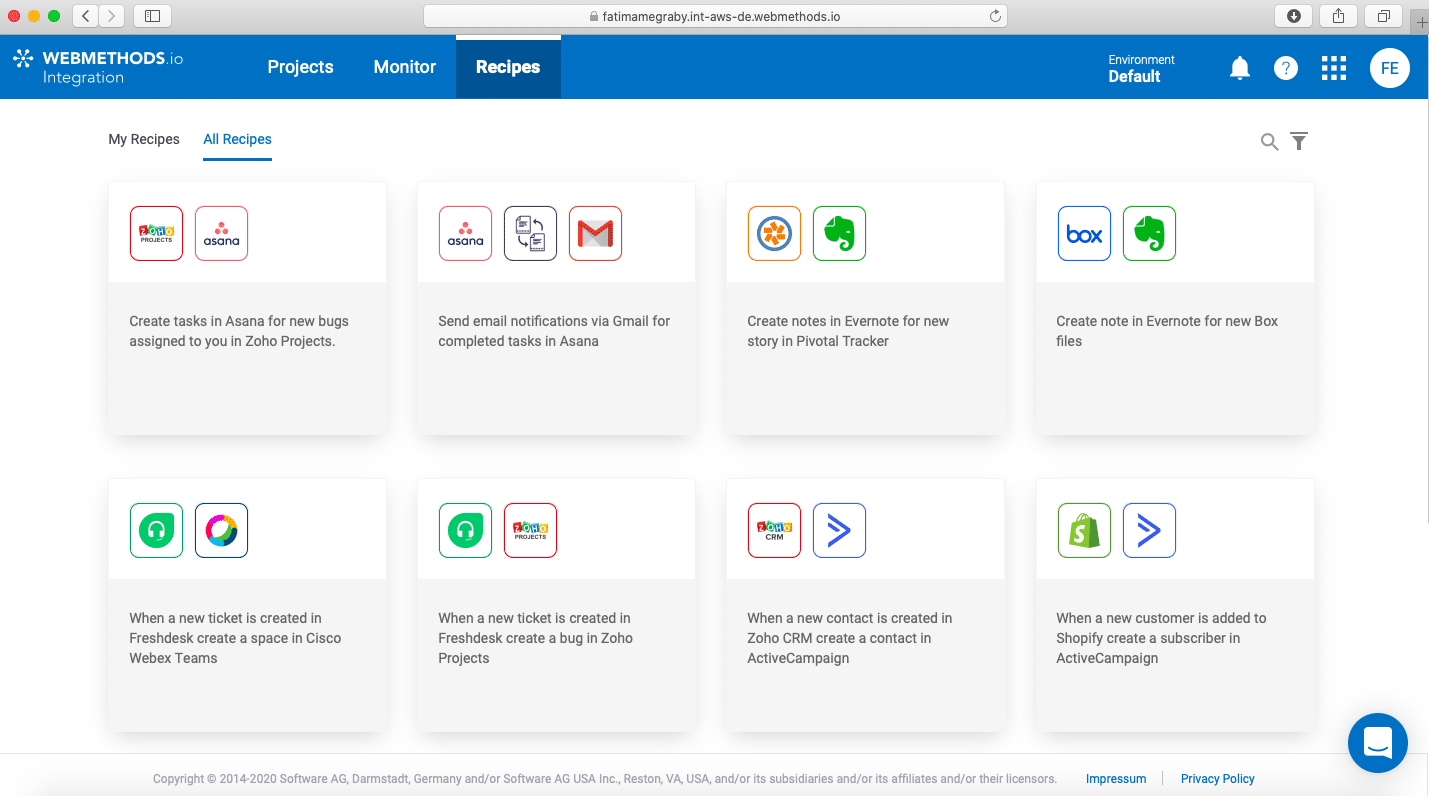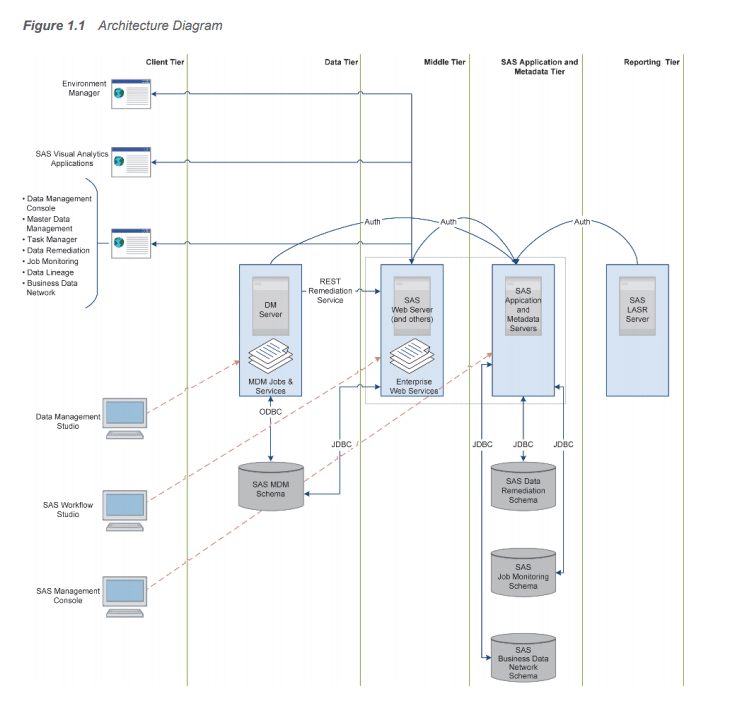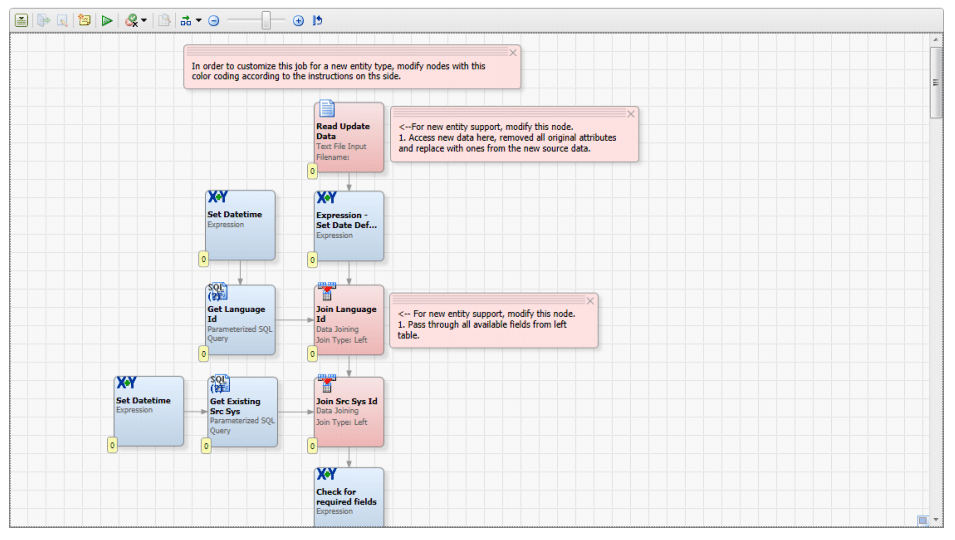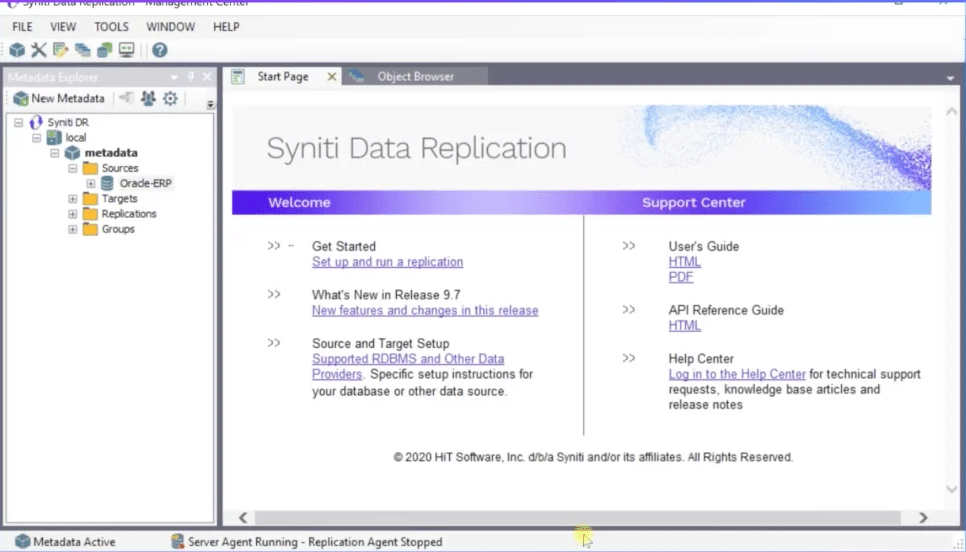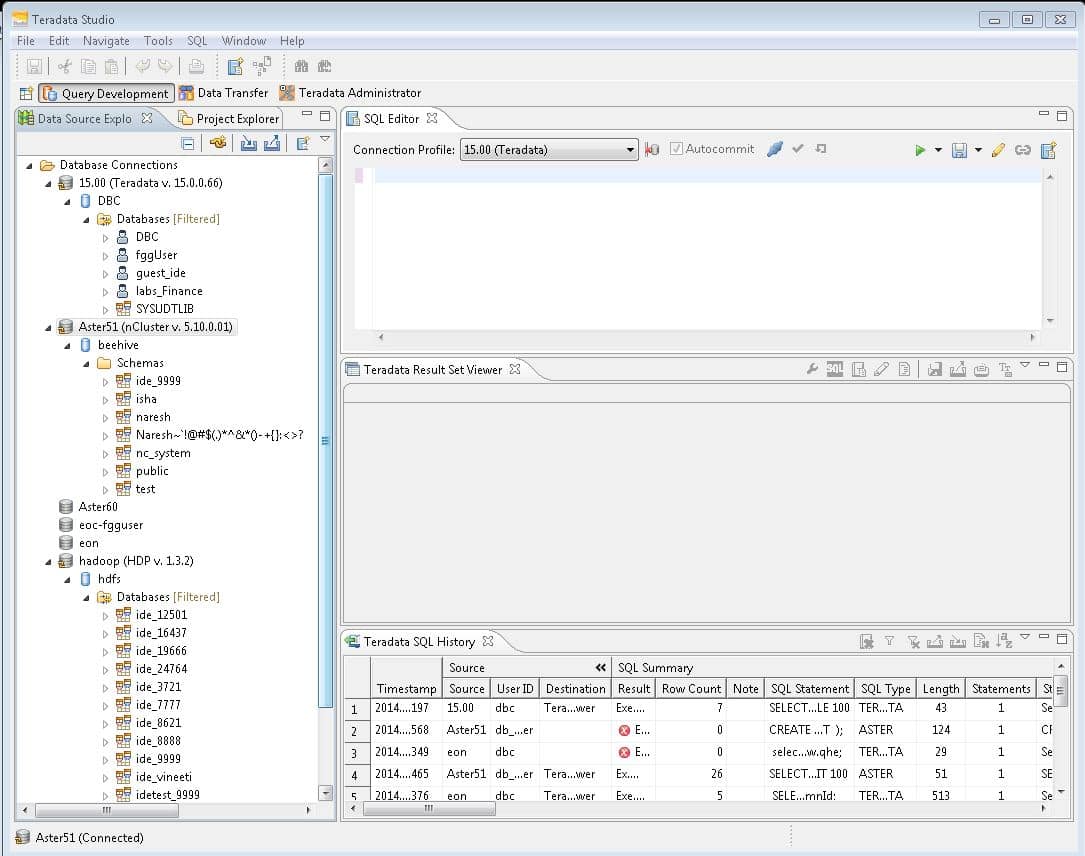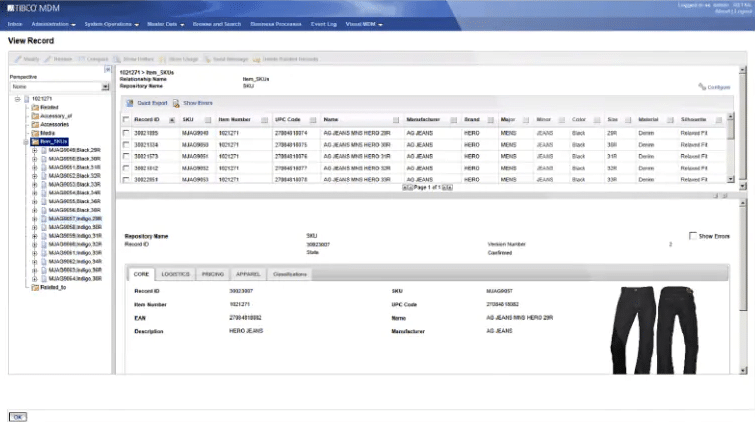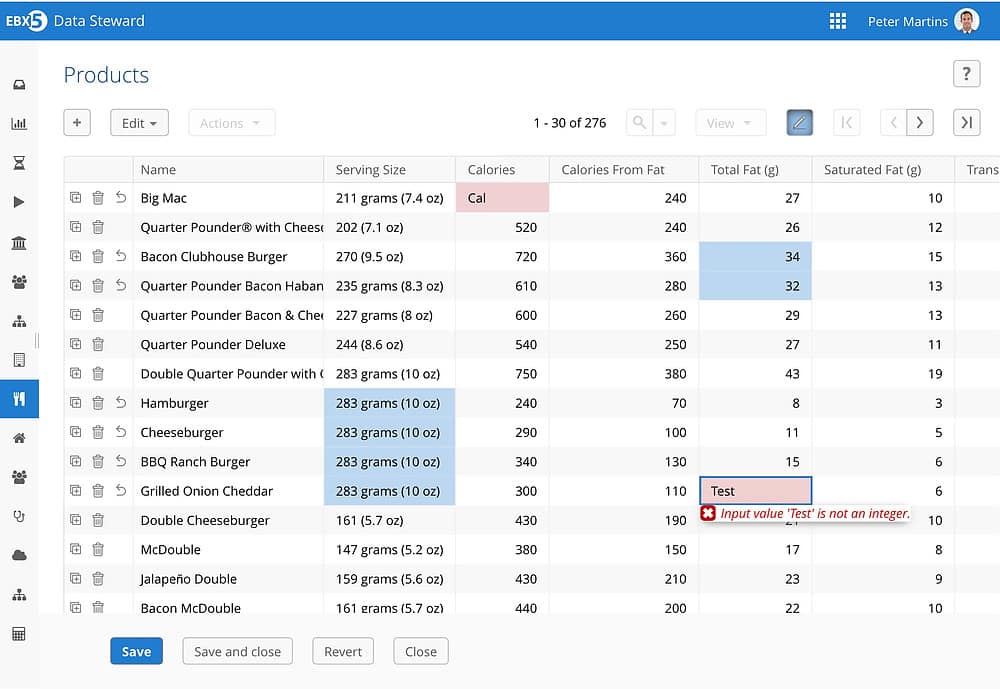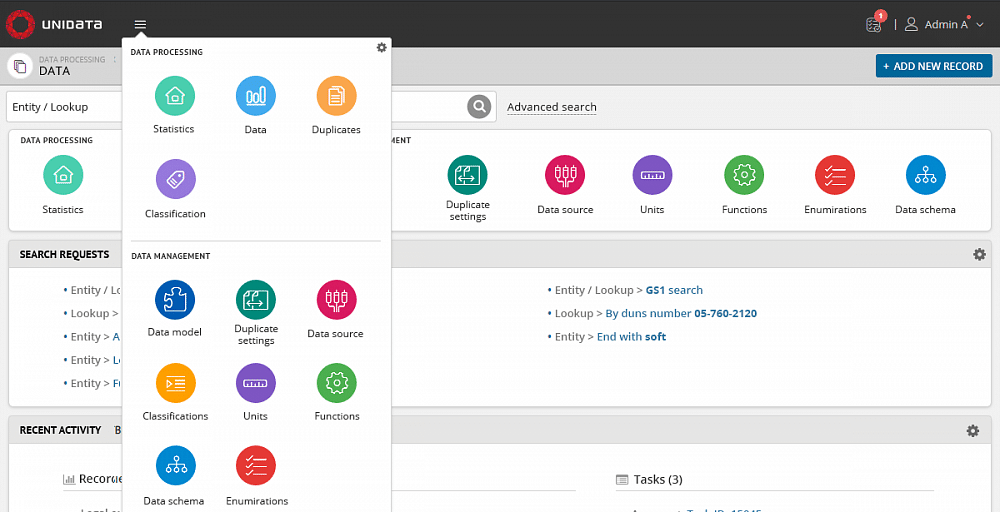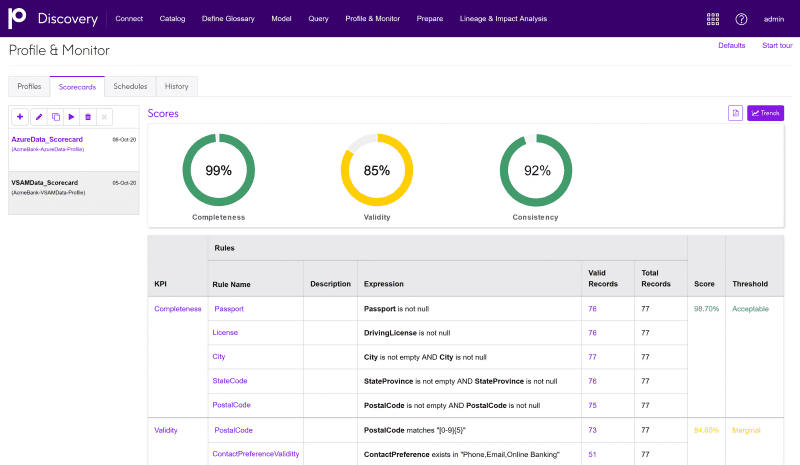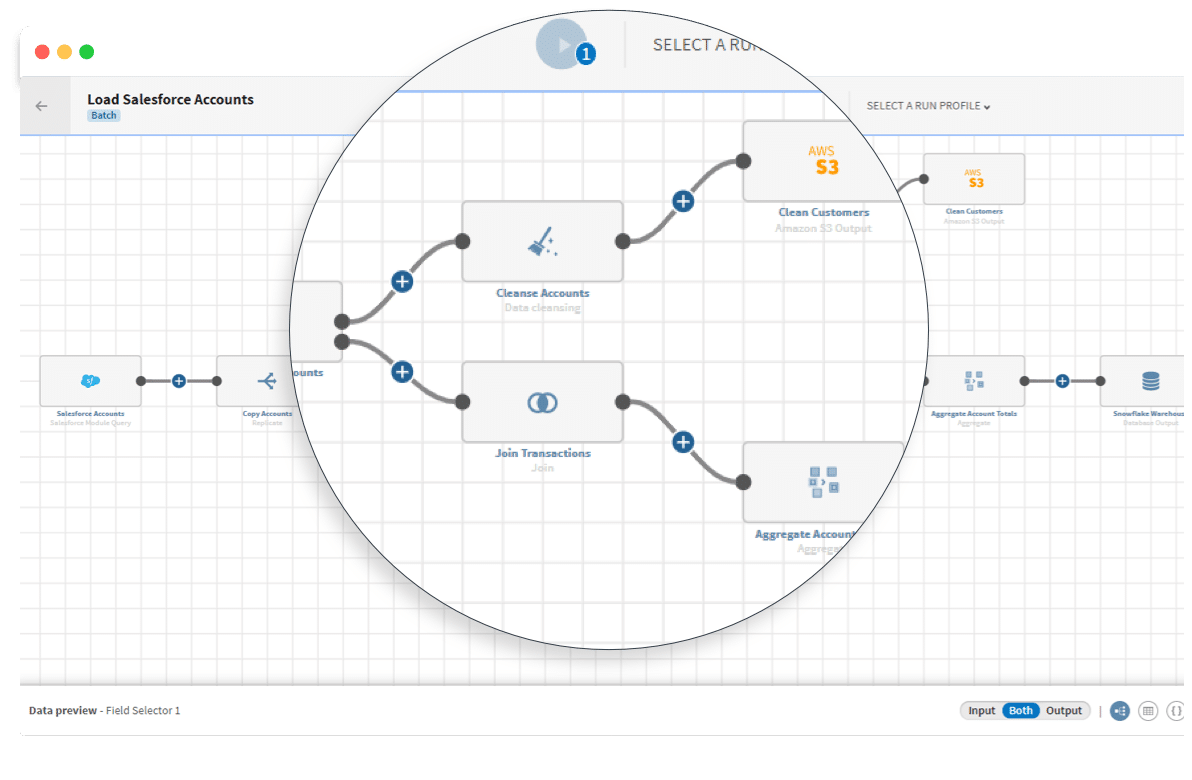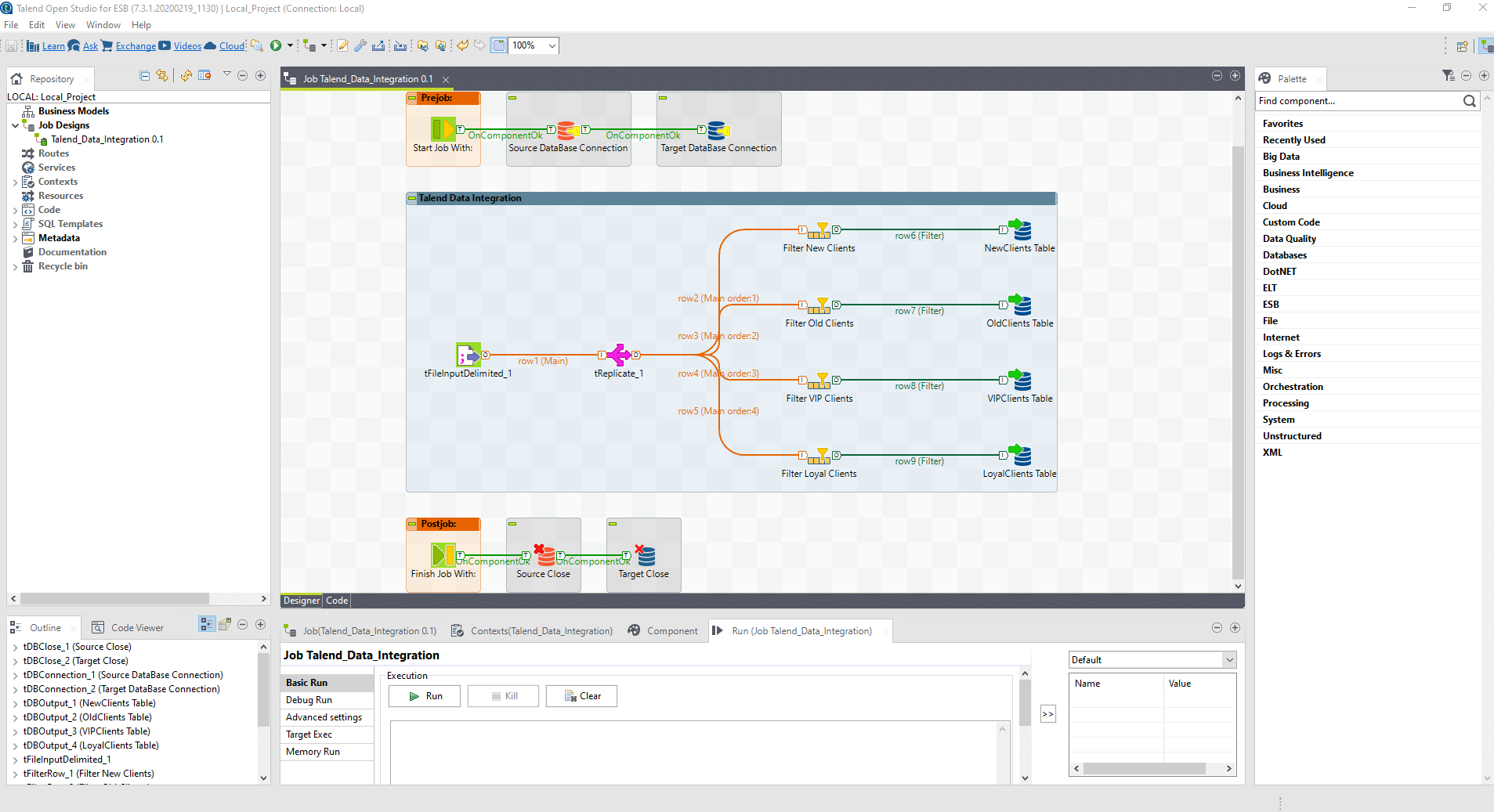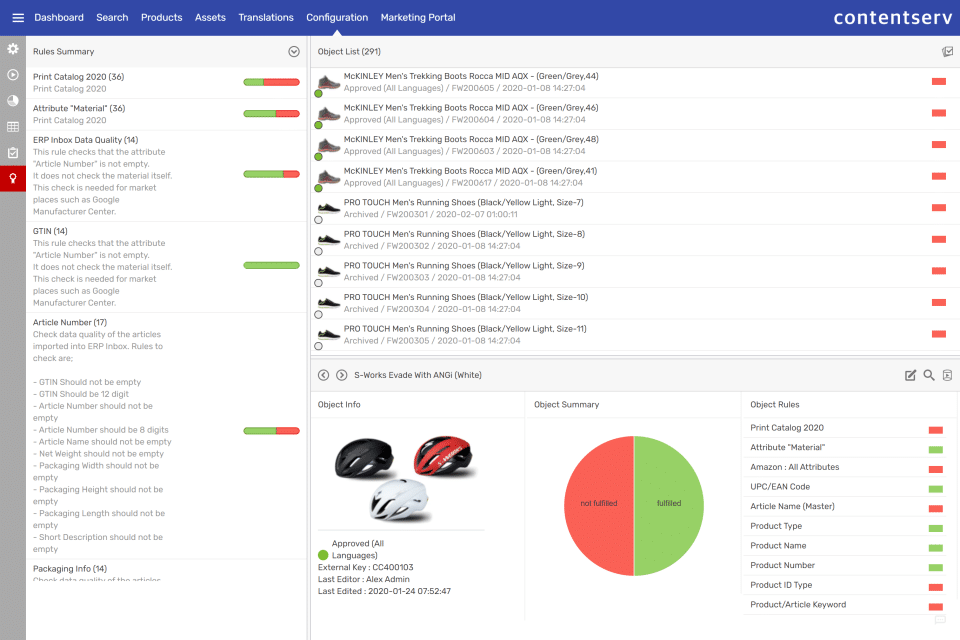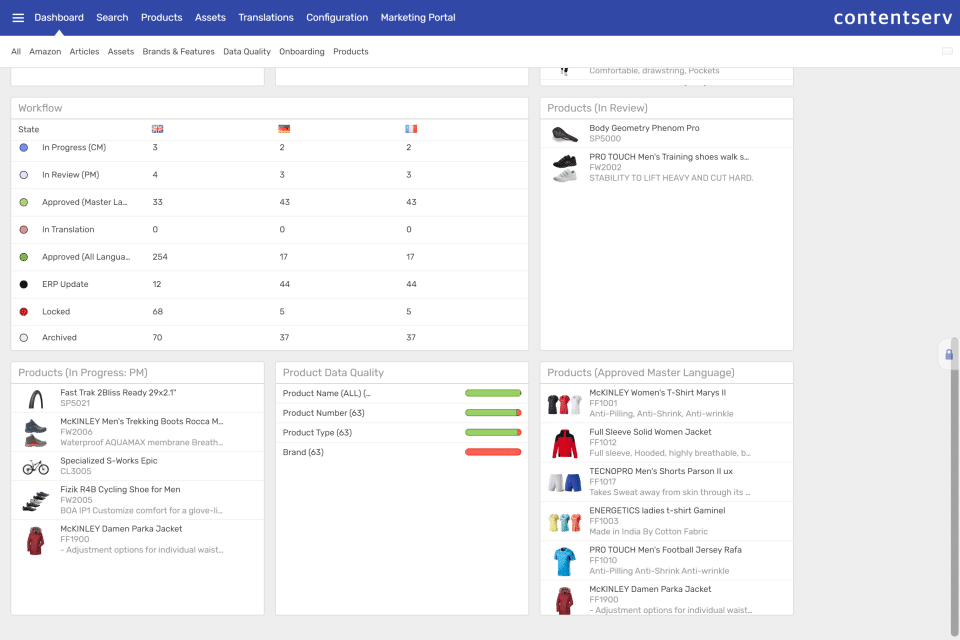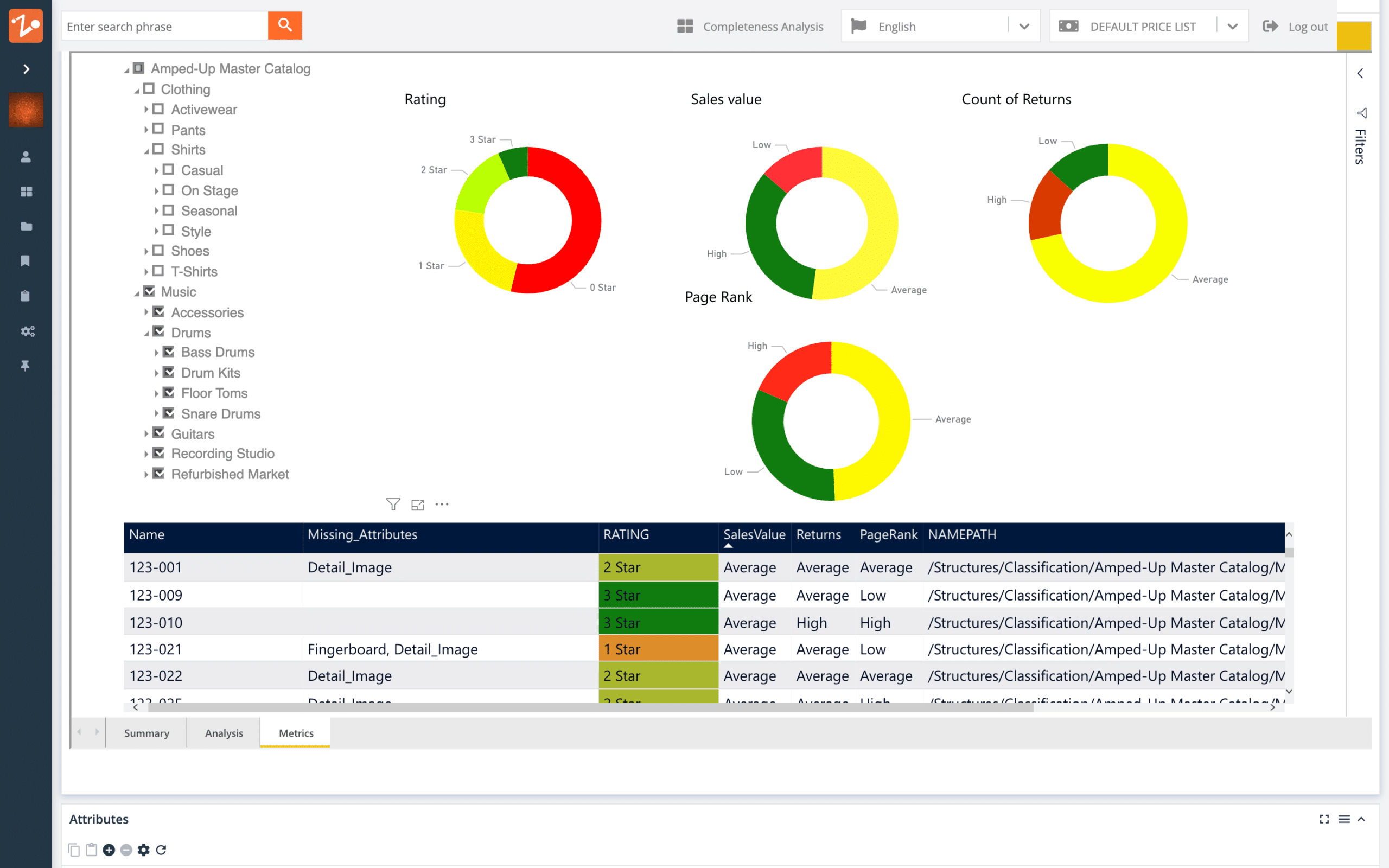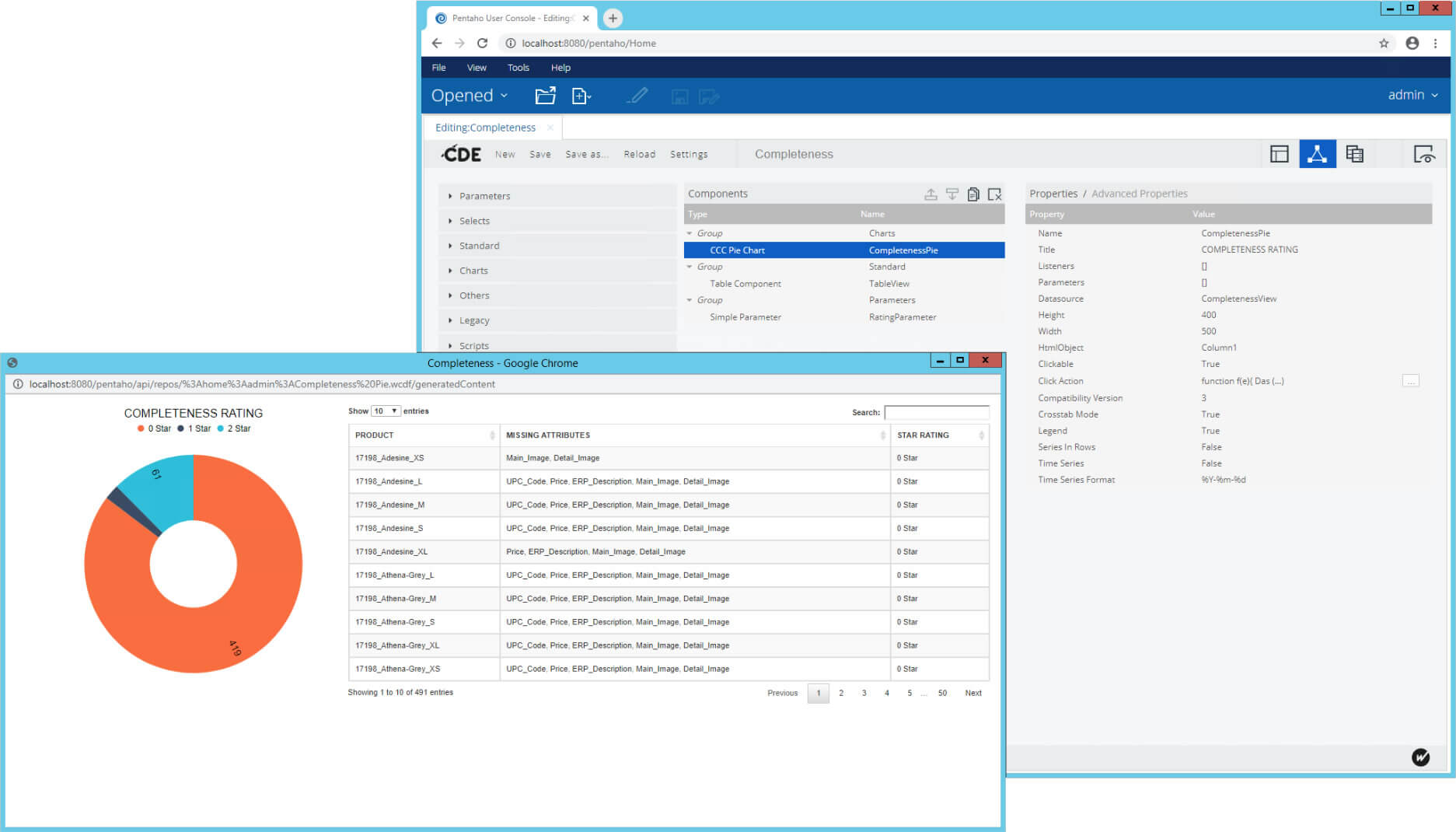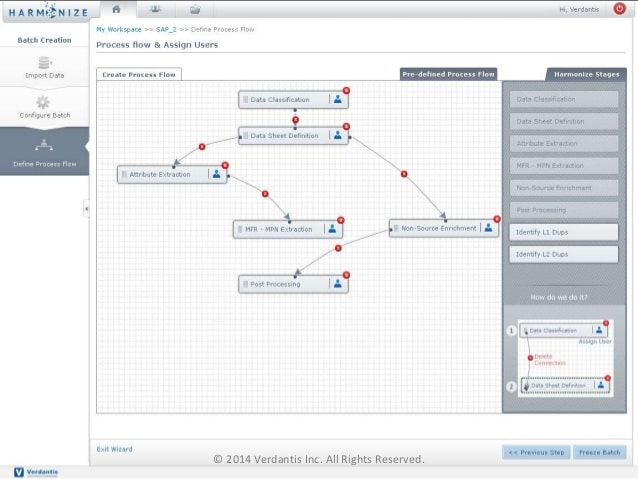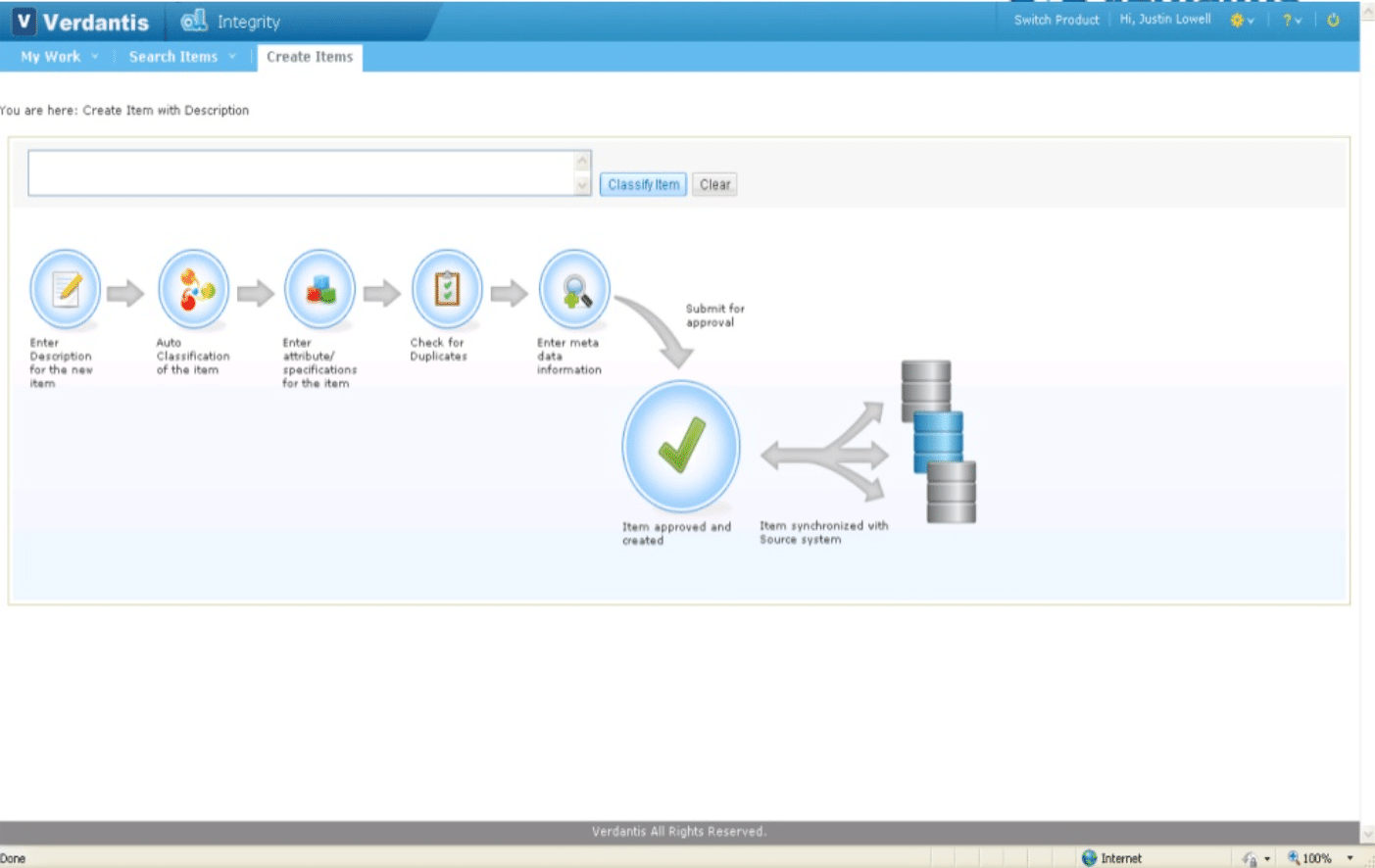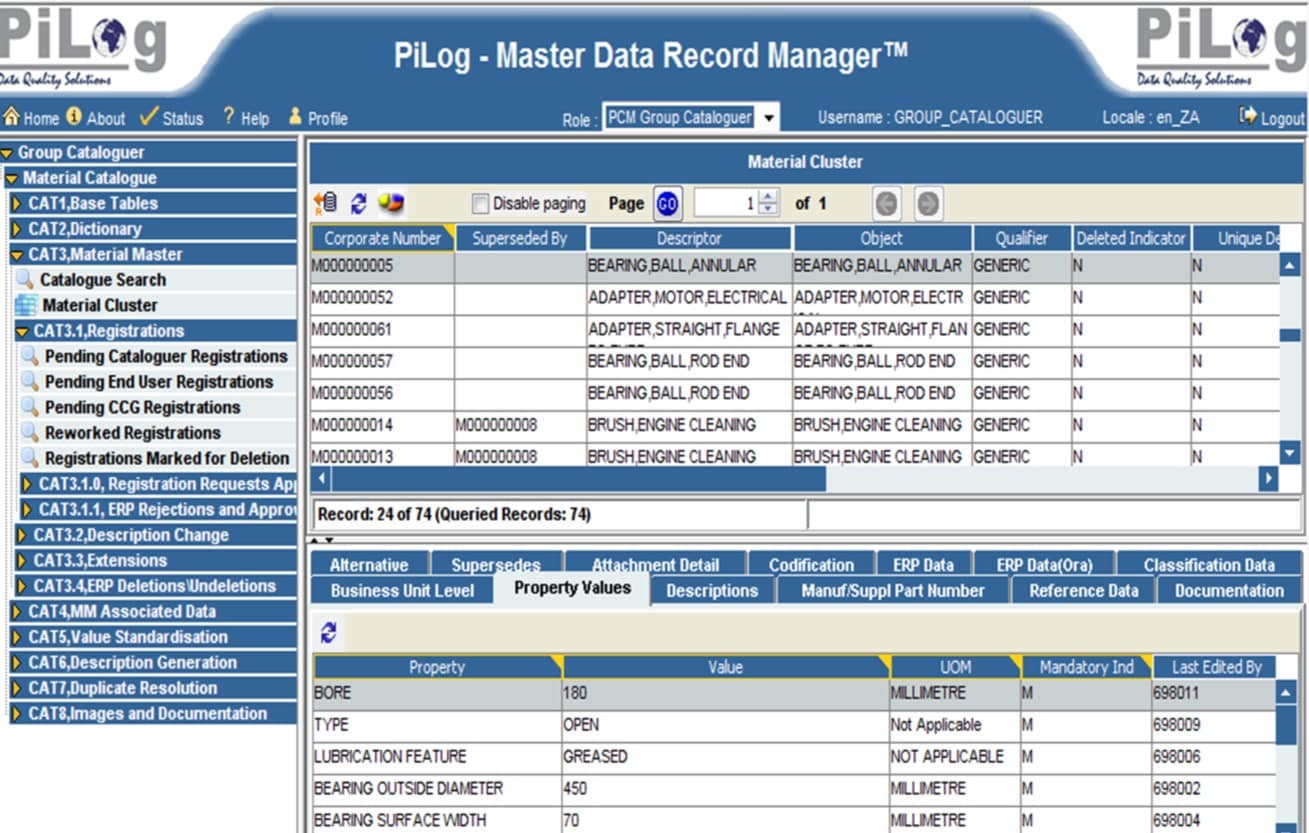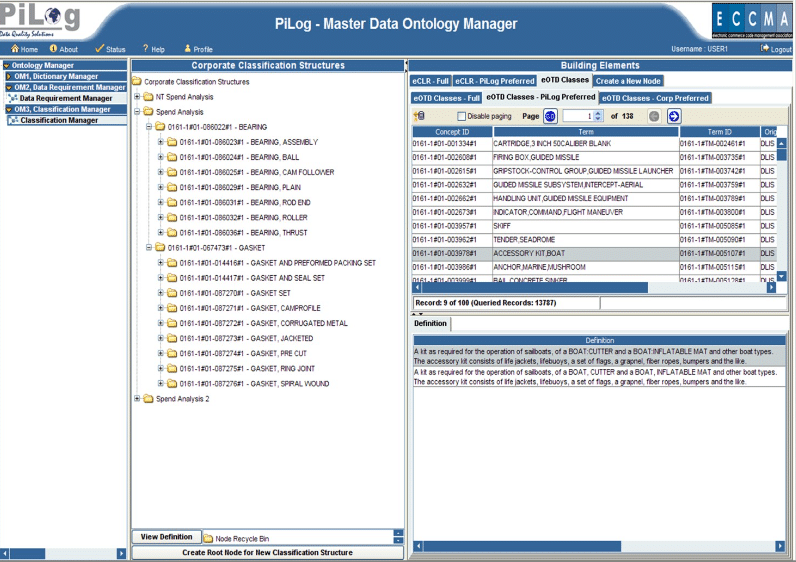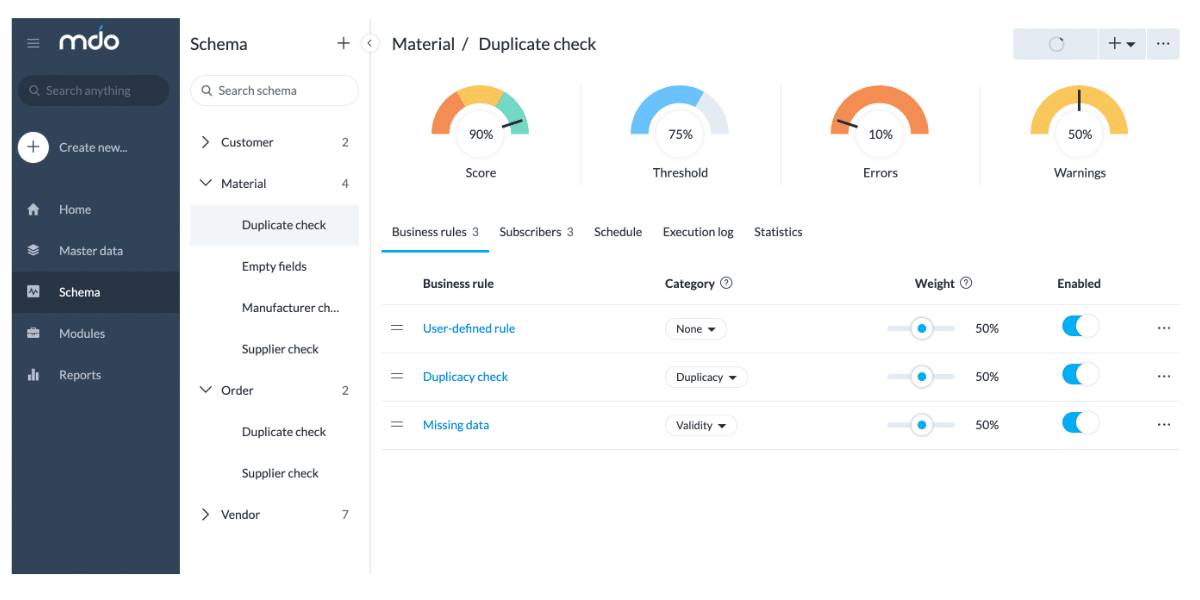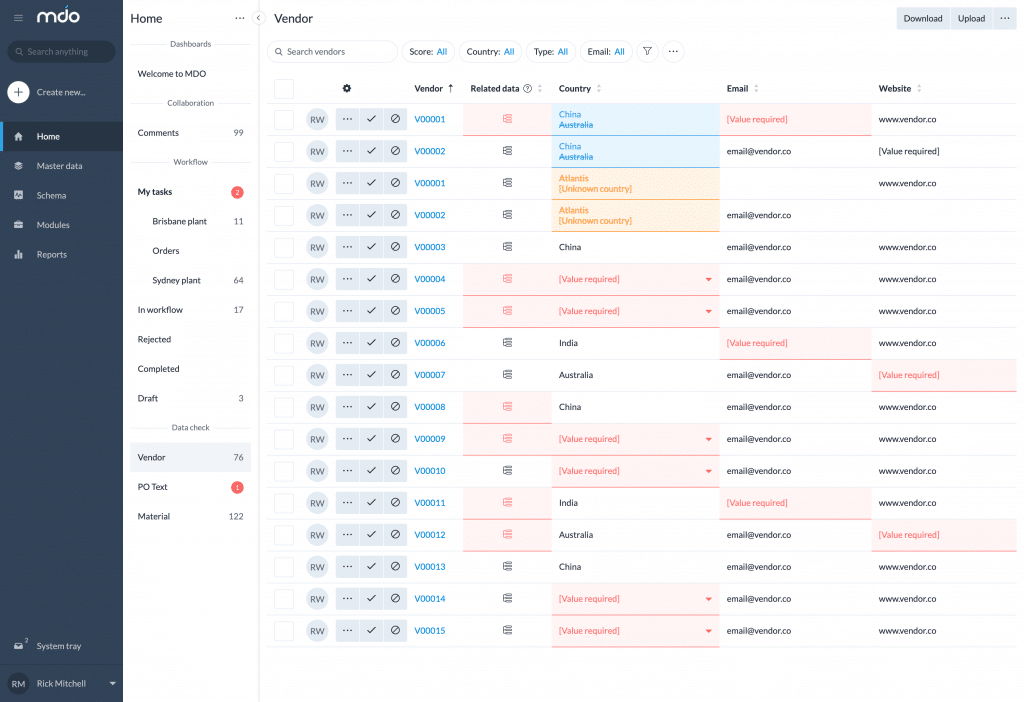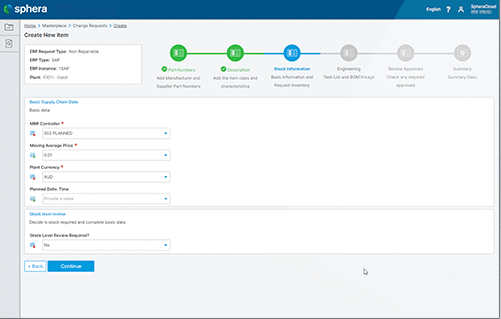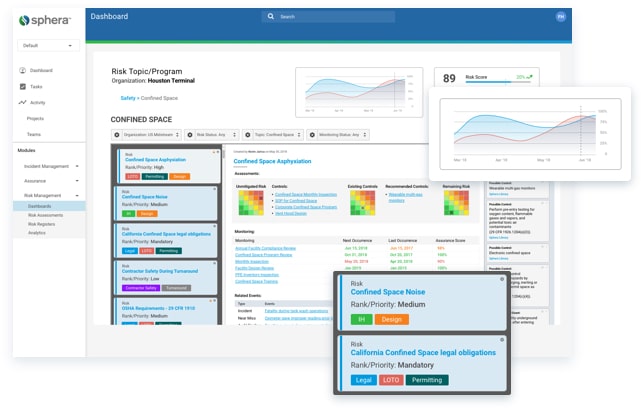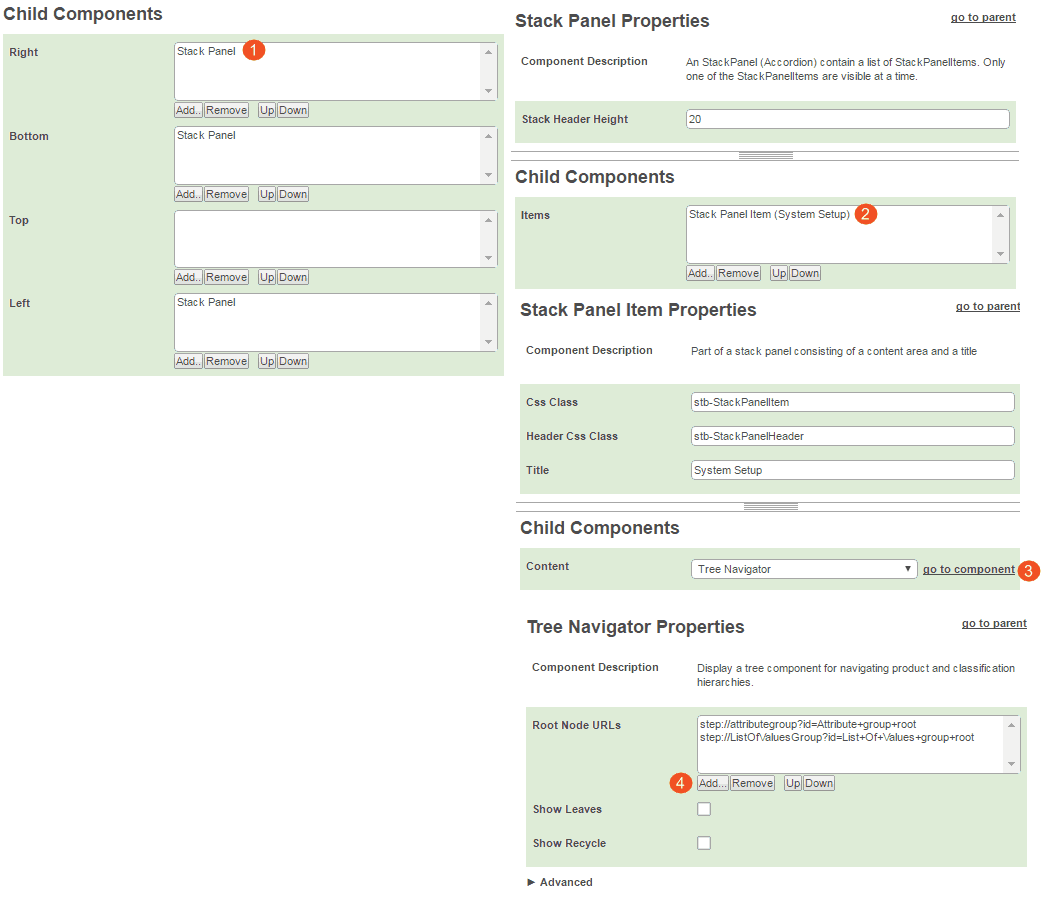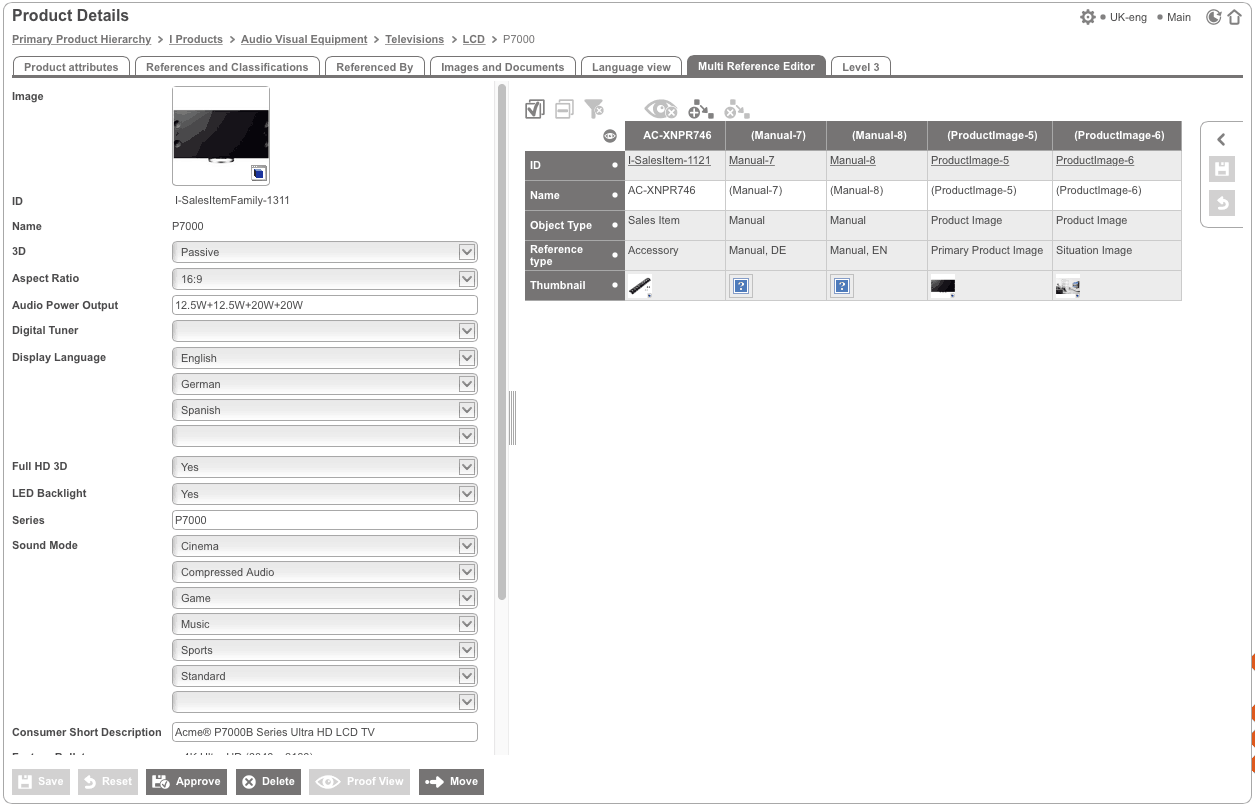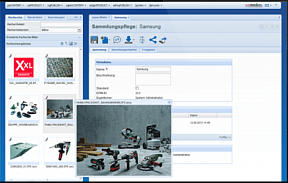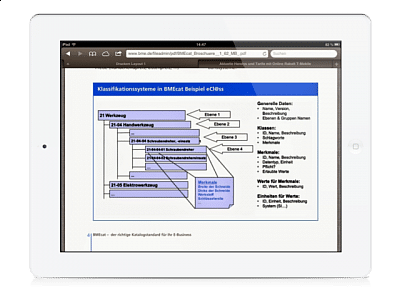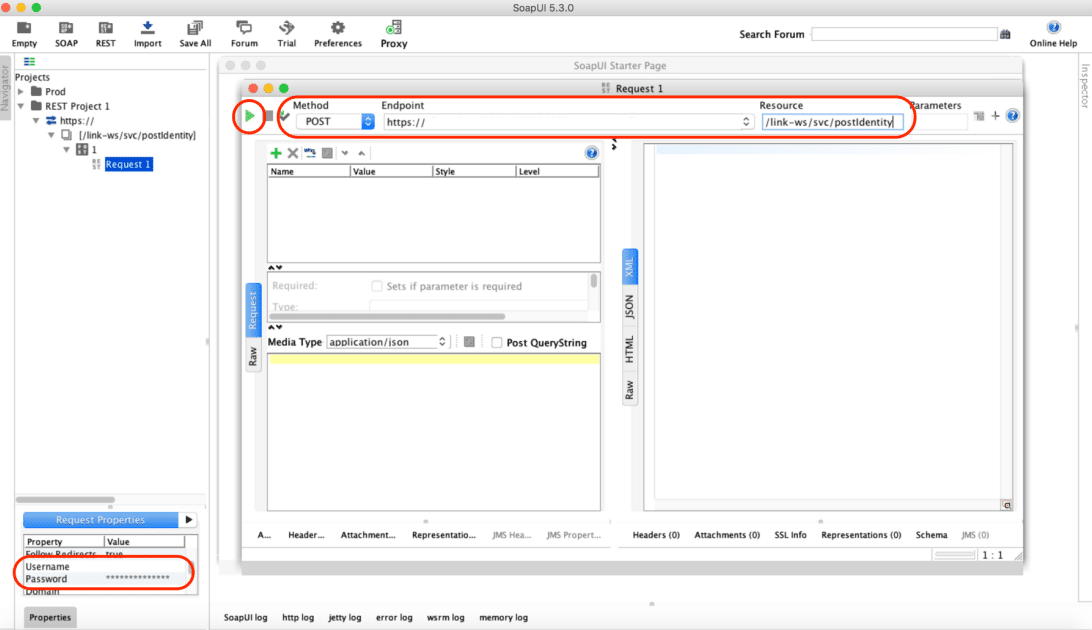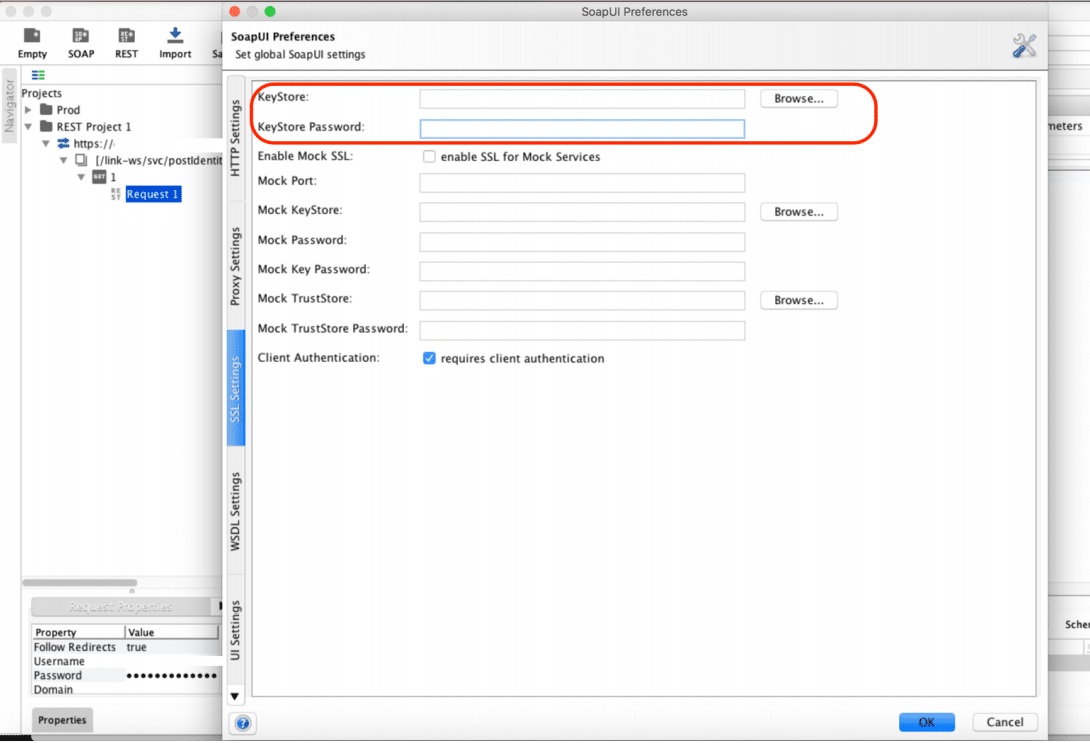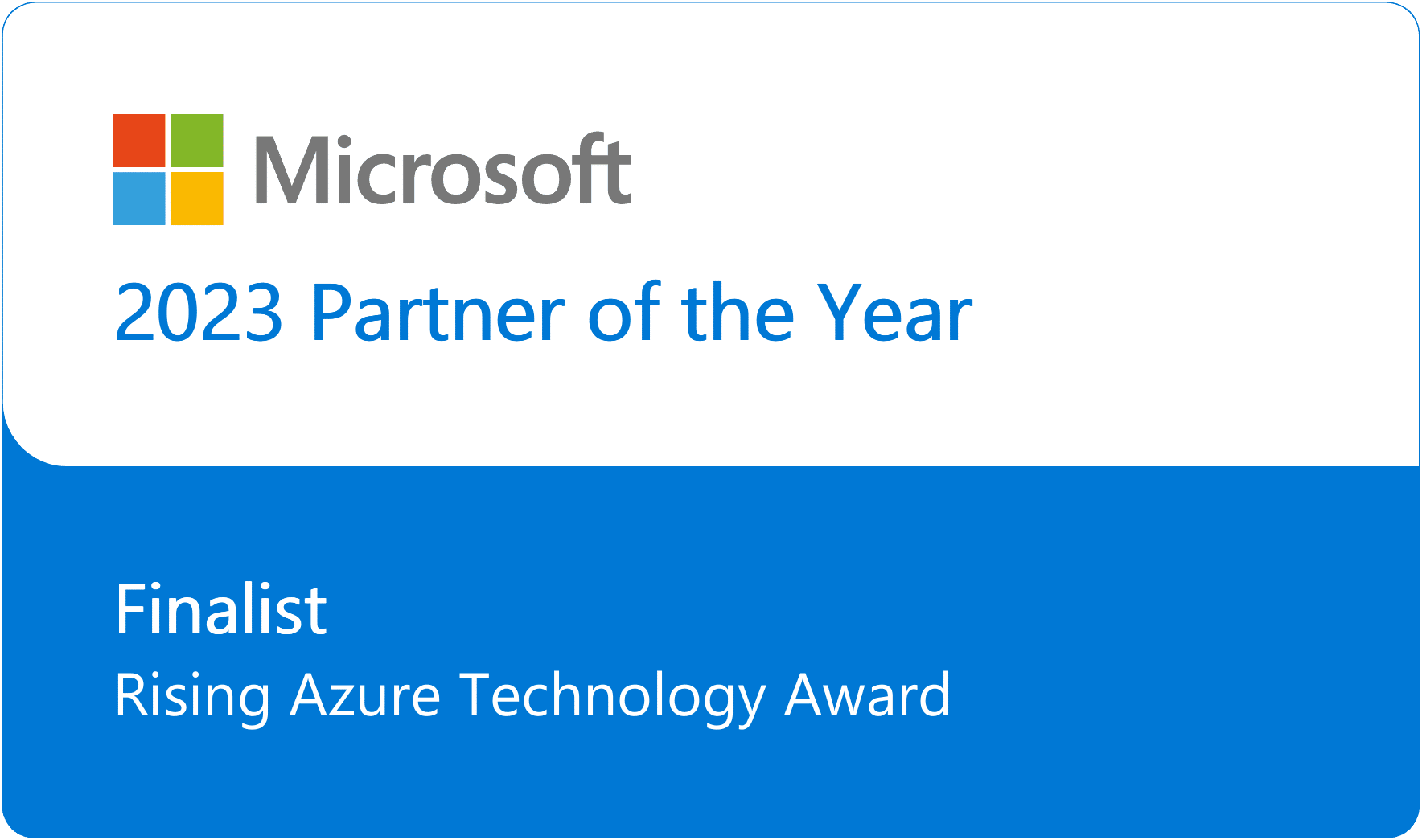Top 30+ Master Data Management Tools [Updated 2024]

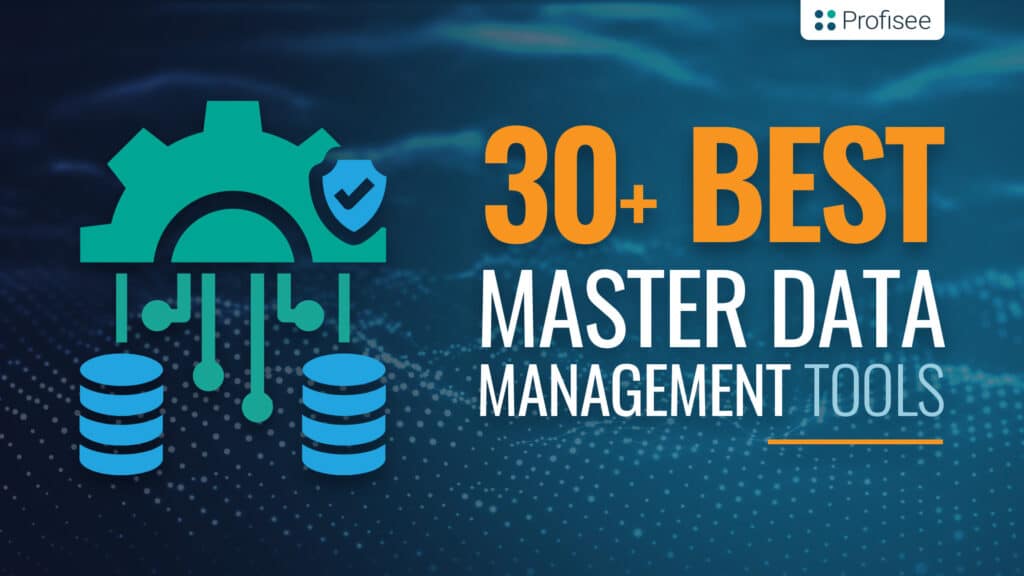
Updated: May 14, 2024
Data’s pivotal role in driving business success necessitates rigorous management of its quality, accessibility and actionability — a challenge increasingly met by deploying master data management (MDM) software. Identifying the right MDM solution is critical, so we put together the following guide offering a comprehensive comparison of 34 top master data management tools to aid in your decision-making process.
But if you prefer to read this guide offline as a PDF, you can download your copy below to read when it’s most convenient for you.
This list should help you:
- Identify the leading MDM software options and understand what each offers (we’ve compiled each solution’s core features, strengths, weaknesses and reviews to make your life easier!)
- Easily compare the capabilities of different options in a single place (no need to have 30+ tabs open on your computer trying to compare each side by side — just scroll on down!)
- Better understand the core capabilities of MDM software at large as well as the nuances of specific solutions
- Identify the best use cases for different software (some solutions are geared toward certain types of companies over others, whether it’s size, industry or anything else, and that’s an important distinction to make)
- Determine how your peers are using the different solutions available and what they’re saying about them
Definitions and vendor claims about MDM capabilities vary, so for your convenience, we have structured this list into the following categories:
Let’s get started!
1. Profisee
The Profisee master data management (MDM) platform provides organizations a fast, affordable and scalable solution to deliver trusted data across the enterprise without the cost, complexity, risk and data domain boundaries of traditional MDM solutions.
Profisee MDM is strongly multidomain with the ability to model an unlimited number of domains in a single environment (most Profisee customers deploy more than one domain in their first year). Built for the cloud, Profisee offers the industry’s first cloud-native containerized Platform-as-a-Service (PaaS) MDM solution giving customers the freedom to choose their deployment, on-premise, in the cloud or via a hybrid model. Although by no means limited to Microsoft-centric environments, Profisee is popular with Microsoft-centric organizations as they are built on a Microsoft tech stack and have built native integrations into Microsoft Azure including Microsoft Purview (data catalog and governance platform). Profisee is known for an industry-leading low total cost of ownership, rapid implementation and a truly flexible multi-domain platform.
Core Features:
- Data modeling
- Data stewardship and governance
- Data integration
- Golden record management
- Enterprise workflows
- Event management
- Metadata management
- Industry and domain-based data models
Strengths:
- Offers fast implementation time and time to value
- Built for unlimited multi-domain implementation in a single environment
- Obvious choice for Microsoft-centric environments
- Features robust golden record management to ensure a single, standardized view of all data, including machine learning-based matching
- Delivers proven scalability with continuing levels of high performance
Weaknesses:
- Lacks strong PIM capabilities, such as BOM support
- Doesn’t leverage NoSQL database tech, such as graph databases
Where to find reviews:
2. Ataccama ONE
Ataccama ONE has a collaborative data curation platform that includes solutions for data profiling and catalog, data governance and quality and master data management. Its MDM solution supports multiple domains, reference data management, hierarchy management and more.Core Features:
- Data consolidation
- Pre-defined business models
- Reference data management
- Business rule enforcement
- Householding, aggregation and categorization to group similar entities and identify relationships
- Data editing and authoring
- Hierarchy management
- Data monitoring and auditing
- Analytical MDM for data lakes
Strengths:
- Supports multi-domain MDM
- Offers robust data matching, identity management and hierarchy management capabilities
- Delivers a highly scalable solution
- Supports big data connectivity and full data quality activities
Weaknesses:
- Less developed product information management capabilities compared to other MDM solutions
- Requires a separate module to support reference data management
- Relatively small player in the MDM market
- Lengthy implementation and deployment process
Where to find reviews:
3. Boomi Master Data Hub, a Dell Technologies Business
Dell Boomi is a built-in-the-cloud MDM solution. It offers capabilities around application integration, master data management and domain-specific data quality. Boomi’s multi-tenant platform supports cloud-to-cloud, cloud-to-on premise and on-premise-to-on premise integrations, including real-time integrations, and it scales elastically to support volume increases.Core Features:
- Visual data modeling and definitions
- Data synchronization through a variety of integrations
- Data stewardship, including the ability to create business rules and alerts
- Data deduping
- API management
- Application integration support
- EDI support
Strengths:
- Supports MDM capabilities, such as bidirectional data flows, data enrichment and multi-domain support
- Offers MDM, data integration and API management in a single solution
- Includes an analytics-based control console
- Provides access to a fully cloud-based solution that integrates easily with both cloud and on-premise applications
Weaknesses:
- Reference data management capabilities are less fully developed than in many other MDM solutions
- Limited product information management capabilities
- Steep learning curve for users
- Poor debugging capabilities
Where to find reviews:
4. EnterWorks (Winshuttle) Multi-Domain MDM
EnterWorks Multi-Domain MDM was acquired by Winshuttle which has a variety of information software and master product data software. Its multi-domain MDM solution integrates product information to provide centralized management and data enrichment.Core Features:
- Data governance, including collaborative workflows and customizable business rules
- Data stewardship that combines data profiling with attribute management capabilities
- Data quality tools to validate, cleanse and classify all imported data
- Multi-domain management, with the ability to centralize governance and stewardship
- Flexible data modeling with no coding required
- Hierarchy modeling
Strengths:
- Offers robust product information and reference data management capabilities
- Delivers an enterprise-level solution with proven scalability
- Uses an XML based architecture that allows users to create custom, complex data models without any coding work
- Provides granular control over data and permissioning
Weaknesses:
- Relatively small partner base
- Data matching capabilities are less fully developed than in many other MDM solutions
- All-in-one solution that may be too much for some organizations
- Needs improvement handling heavy user traffic
Where to find reviews:
5. ibi (Information Builders) Data & Analytics
IBI (Information Builders) offers an integrated platform for business intelligence (BI), analytics, data integration and data quality. Its data platform includes capabilities for data preparation, integration, quality, management and governance.Core Features:
- Multi-domain MDM
- Facilitated integration that supports a variety of data, including transactional data
- Built-in historical data to capture mastered and transactional subjects
- Data governance, including out-of-the-box orchestration of remediation activities such as cleansing overrides and identity matching overrides
- Configurable workflows
- Reference data
- Data quality services for deduping data
Strengths:
- Features an easy-to-use UI for core capabilities
- Boasts a strong variety of customer references and reviews
- Provides access to extended capabilities, particularly around BI and analytics through other solutions from Information Builders
- Includes design tools to visually represent both golden records and source records
Weaknesses:
- Poor documentation and training for non-core capabilities
- Minimal relationships with major systems integrators
- Limited visibility into product roadmap
- Room for improvement with monitoring and error notifications
Where to find reviews:
6. IBM InfoSphere Master Data Management
IBM InfoSphere Master Data Management is a multi-domain enterprise MDM solution that includes access to IBM’s data governance and orchestration offerings. It offers a highly configurable framework with capabilities for a variety of business users as well as data analytics.Core Features:
- Data matching and deduping
- Configurable framework available on-premise or in the cloud
- Policy management capabilities for authoring, monitoring and enforcing data quality
- Graph-based representation for master data and transactional data
- Flexible access to IBM’s data governance and integration solution
Strengths:
- Supports multi-domain MDM
- Offers multiple deployment options, including on-premise and cloud
- Delivers robust support for big data governance and reference data management
- Offers a scalable solution with proven performance, especially around data matching
Weaknesses:
- Relatively complex solution
- Typically requires a large technical footprint, which can make implementations lengthy
- User licensing can get complicated and become expensive quickly
- Requires frequent updates
Where to find reviews:
7. Informatica MDM
Informatica is an enterprise cloud data management provider with a variety of solutions designed to help organizations take control of their data and put it to work. Informatica has several MDM solutions providing multiple domain MDM capabilities and can be deployed in the cloud or on-premise.Core Features:
- Data acquisition, including from cloud, on-premise or third-party sources
- Data enrichment
- Relationship identification
- Data deduping
- Integrations with transactional and social data
- Identity resolution
- Business process management
- Supplier and product information management
- Data integration, quality and governance
Strengths:
- Supports multiple domain MDM
- Offers big data relationship management
- Offers multiple deployment options and supports several use cases due to its ability to integrate a variety of data types (including transactional and supplier data)
Weaknesses:
- Less developed data governance capabilities compared to other MDM solutions
- Multiple solutions may not all be well integrated
- Features a complex UI that has a learning curve to it, especially for business users
- Implementation can be difficult and typically requires a highly experienced partner
- Limited capabilities around reference data
Where to find reviews:
8. Magnitude Kalido MDM
Magnitude Kalido MDM is a multi-domain MDM solution that supports data modeling and policy-driven data governance. It also offers a handful of interfaces for unique audiences, with different views for a variety of roles.Core Features:
- Audience-specific interfaces
- Reference data management and hierarchy management capabilities
- Data harmonization to combine multiple data sources and create a golden record
- Centralized master data authoring for creating new records, applying business rules and pushing data out to operational systems
- Data stewardship and policy-driven governance
- Visual data modeling
Strengths:
- Offers reference data management, hierarchy management, centralized authoring and data harmonization in a single solution
- Supports multi-entity MDM and deployments across multiple domains
- Allows for unique user interfaces for different roles, all without any coding
- Features robust visual modeling capabilities
Weaknesses:
- Minimal relationships with major system integrators
- Limited customer references and reviews
- Magnitude’s history of and continued focus on acquisitions can lead to poorly integrated solution developments (versus natively developing new capabilities)
- Less developed information governance support compared to many other MDM solutions
Where to find reviews:
9. Neo4j Graph Platform
Neo4j is a graph platform for connected data. It specializes in recognizing relationships among data points using a graph database as the foundation of its platform. Neo4j offers a variety of data management capabilities, including data integration, discovery and visualization.Core Features:
- Graph analytics for data visualization and understanding
- Data discovery
- Data lake integration
Strengths:
- Offers robust graphical capabilities for data analytics
- Features user-friendly dashboards
- Includes strong domain data modeling capabilities
- Delivers highly responsive customer support
Weaknesses:
- Supports only very niche use cases
- No support for multiple domains
- Limited integrations with popular web frameworks
- Limited user community support
Where to find reviews:
10. Oracle Enterprise Data Management
Oracle Enterprise Data Management is a multidomain, enterprise-level MDM platform. Formerly a standalone MDM platform, it is now embedded within cloud applications and consists of several different solutions designed to collect and standardize data as a service of the application.Core Features:
- Customer data management
- Data governance, including data quality remediation workflows
- Data management for operational and analytical data
- Configurable workflows
- Data quality capabilities for standardizing, matching, merging, analyzing and cleansing data
- Product information management
Strengths:
- Supports multiple domain MDM in Oracle applications
- Has a strong global presence
- Integrates MDM capabilities with data governance and reference data management capabilities
- Offers proactive data governance
Weaknesses:
- No support for vertical-specific data models
- Not a standalone solution
- Does not have a very user-friendly UI
- Relatively expensive solution
- Lengthy implementation process
Where to find reviews:
11. Reltio
Reltio is a cloud-based, multi-domain MDM solution. It supports both structured and unstructured data and offers a scalable solution that can meet the needs of smaller organizations and enterprises alike.Core Features:
- Blends and relates master data, reference data, transaction data, interaction data and social data into a single unified view
- Data as a Service capabilities for access to third party data sets
- Data auditing and change tracking
- Big data insights
- Recommended actions
- Built-in analytics
- Collaborative workflows
Strengths:
- Supports multi-domain MDM
- Allows for collaborative data stewardship, rating and segmentation
- Features native data visualization, analytics and search functionality
Weaknesses:
- Relatively new player in the MDM space with a still-evolving platform
- Generally requires extensive customization that must be performed by a partner
- Limited customer references and reviews
- Minimal implementation support and documentation
- Limited user documentation
Where to find reviews:
12. SAP Master Data Governance
SAP Master Data Governance is the MDM solution from enterprise application software provider SAP. The Master Data Governance solution provides domain-specific MDM as well as collaborative and pre-built workflows.Core Features:
- Audit trail for changes to master data
- Collaborative and pre-built workflows
- Data cleansing, including profiling, standardization, matching and enrichment
- Automated routing
- Built-in data governance based on pre-configured data models
- Role-based user interfaces
Strengths:
- Cloud platform built on SAP HANA, an in-memory data platform that supports data cleansing activities and analytics
- Features flexible workflows, including numerous pre-built ones
- Offers pre-configured and extensible data models
- Supports multi-mode data replication efforts
Weaknesses:
- Less developed hierarchy management capabilities compared to other MDM solutions
- Relatively immature cloud integration support
- Limited matching capabilities
- Relatively limited analytics support for social CRM data
- Does not have the most intuitive UI
Where to find reviews:
13. Semarchy xDM
Semarchy offers multi-vector MDM through its xDM platform. The platform uses algorithms and material design to make data stewardship collaborative. Semarchy also takes an agile, iterative approach to implementing its xDM platform.Core Features:
- Guided authoring for data maintenance
- Flexible data modeling
- Collaborative and agile data governance
- Match and merge capabilities to maintain a single source of truth
- Multi-vector MDM for data taxonomies
- Device traceability
Strengths:
- Offers integrated modeling without any additional code
- Delivers strong scalability with options for AWS cloud or on-premise setup
- Includes metrics, dashboards, versioning and lineage as standard features of the xDM platform
Weaknesses:
- Minimal relationships with major system integrators
- Smaller proven customer base
- Collaborative data governance is not part of the core xDM solution
Where to find reviews:
14. Software AG OneData for MDM
Software AG offers multi-domain MDM through its OneData solution. The OneData solution is part of Software AG’s larger Digital Business Platform, which includes solutions for analytics and decisions, process and applications, integration and API and devices.Core Features:
- Agile, multi-domain data modeling
- Data governance framework that supports internal and external workflows
- Role-based security and ability to manage authorizations down to the cell level
- Data quality matching and grouping
- Address verification and geocoding
Strengths:
- Offers native integrations to all the solutions in Software AG’s Digital Business Platform, including one for business process management
- Includes detailed hierarchy management
- Supports several data architectures and use cases
- Delivers intelligent MDM for geographic data
Weaknesses:
- Its process-based approach to MDM is a relatively new introduction to the solution
- Minimal relationships with major system integrators
- Limited cloud offerings
- History of issues in new product releases
Where to find reviews:
15. SAS MDM
SAS MDM is a multi-domain MDM solution from SAS, an enterprise provider of analytics solutions. SAS MDM offers a complete solution for data management, with a strong focus on data quality and governance. Alongside the solution itself, SAS also offers MDM consulting services.Core Features:
- Data quality
- Data governance
- Data modeling
- Data integration
- Relationship management
- Reporting and visualization
- Source system harmonization
- Data stewardship through role-based interfaces
Strengths:
- Supports multi-domain, multi-entity and domain-neutral MDM
- Offers active data governance with strong data lineage and data remediation as well as a comprehensive business glossary
- Builds a strong foundation for MDM by starting with data quality and then layering on data governance
- Delivers a highly scalable solution with reliable support for large datasets
Weaknesses:
- Limited support for product master data
- Minimal relationships with major system integrators
- Unclear if a solution is being actively developed
- Relatively expensive solution
- Limited user documentation
Where to find reviews:
16. Syniti
Syniti offers master data management as part of its Syniti Knowledge Platform software stack with a broad focus on data management capabilities. Syniti’s ‘Orchestrate’ features enforce the entry of the highest-quality master and application data into business systems.Core Features:
- Comprehensive data management platform
- Over 160 software and platform integrations
- Available through large partner network
Strengths:
- Manufacturing focus
- Comprehensive data management platform
- Usage-based pricing
Weaknesses:
- Standalone MDM is not an option
- Limited cloud deployments
- ERP market focus
Where to find reviews:
17. Teradata MDM
Teradata MDM is a multi-domain MDM solution that also offers data governance for master and reference data. It relies on a workflow and process-driven environment to define and optimize master data.Core Features:
- Data governance
- Reference data management
- Data cleansing, arranging, tracking and synchronization
- Customer interaction, product, supplier, account and business data support
Strengths:
- Supports multi-domain and multi-entity MDM
- Offers a data matching engine
- Includes reference data management and enterprise data warehouse capabilities
- Supports analytical and operational MDM
Weaknesses:
- Limited customer references and reviews
- Minimal relationships with major system integrators
- Relatively limited active data governance capabilities compared to other MDM solutions
- Customers have reported performance decreases as data volume scales
Where to find reviews:
18. TIBCO EBX
TIBCO EBX (previously Orchestra Networks) offers a variety of solutions to help organizations manage their data assets through its EBX platform. The EBX platform covers multi-domain master data management, reference data management, data governance, hierarchy management and taxonomy management.Core Features:
- Flexible data modeling
- Integrated data quality capabilities for profiling, cleansing, validating and matching data
- Collaborative workflows
- UI designed for business users to view data
- Real-time and batch integration options
- Data quality dashboards
Strengths:
- Delivers robust hierarchy management capabilities
- Features strong visualization and workflow capabilities
- Supports multi-domain MDM and data governance
Weaknesses:
- Limited user documentation
- Complex configuration process for users who want to go beyond out-of-the-box capabilities
- Weak matching capabilities
- Offers customers a limited view into product roadmap
Where to find reviews:
19. Unidata
Unidata sells a multi-functional data management platform that includes master data management alongside business glossary, business process management, reference data management and other tools.Core Features:
- Data modeling
- MDM and reference data management
- Business process management (BPM)
- Data quality
Strengths:
- GDPR compliant
- Includes governance functionality
Weaknesses:
- Mostly focused in EU
- MDM not available as standalone software
Customer Data Integration (CDI) Focused
Software vendors whose technology focuses primarily on the management of customer information, traditionally called Customer Data Integration (CDI). These vendors may not have a generalized, multidomain MDM offering.
20. Innovative Systems Inc. Synchronos
Innovative Systems Inc. is a long-established provider of enterprise data management and risk management solutions. Its Synchronos MDM solution supports operational and analytical use cases and can be deployed on-premise, in the cloud or as a hybrid solution.Core Features:
- Data profiling, discovery and monitoring
- 360-degree view of data
- Workflow management
- Reference data management
- Metadata management
- Extended relationships networking
- Enterprise modeling
- Data quality
- API integrations
Strengths:
- Offers an easy to use and low maintenance platform that requires minimal resources
- Offers hierarchy management and workflow management
Weaknesses:
- Does not have a tool for data governance, just consulting services
- Innovative Systems has over 45 years of data management experience, but the Synchronos solution itself is relatively new to the MDM market
- Reference data management capabilities are integrated into the larger MDM platform, which can be limiting as opposed to having a separate tool
- Minimal relationships with major system integrators
Where to find reviews:
21. Precisely Data Integrity Suite
The Precisely Data Integrity Suite is a suite of solutions from Precisely, a new company formed following the merger of Syncsort and Pitney Bowes Software & Data. Precisely is known for enabling commerce through its mailing, shipping and global eCommerce solutions. It also offers software and data solutions around location intelligence, customer engagement and customer information management.Core Features:
- Metadata insights to create a single view of customers
- Data hub module for developing data models
- Data federation to democratize access to information without combining data sources
- Enterprise data integration module that supports batch and real-time integrations with multiple data sources
- Data stewardship for address verification and geocoding
Strengths:
- Features an easy-to-use UI for graphical data modeling, especially for complex and connected data
- Offers data integration, data quality, data governance and analytics capabilities all in one solution
- Delivers semantic modeling and robust support for multi-entity and multi-domain MDM
- Delivers a single platform SaaS solution that covers MDM, intelligence and customer engagement
Weaknesses:
- The entire MDM solution is relatively new to the market
- Data governance capabilities are less fully developed than in many other MDM solutions
- Minimal partner relationships
- Limited product information management and reference data management capabilities
Where to find reviews:
22. Talend Customer 360
Talend offers a Customer 360 platform as part of its Talend Data Fabric suite of products that combines data integration, integrity, and governance in a single, unified platform.Core Features:
- Data components and connectors, including file management, data orchestration and integrations
- Design and productivity capabilities, including data schemas and interactive data viewers
Strengths:
- Offers MDM capabilities for a variety of users and roles
- Has a relatively lower cost compared to many other MDM solutions
- Supports XML based MDM
- Boasts a strong customer base, especially from a big data perspective
Weaknesses:
- No upstream data governance
- Relatively new cloud offering
- UI is not intuitive and doesn’t support customization
- Requires significant resources to run
Where to find reviews:
Product Information Management (PIM) Focused
Software vendors whose technology focuses primarily on the management of product information, traditionally called Product Information Management. PIM products traditionally support eCommerce by managing the product catalog. These vendors may not have a generalized, multidomain MDM offering.
23. Contentserv
Contentserv’s product-focused MDM platform allows manufacturers to align multiple information management technologies from different departments or business units to a single point of reference, commonly known as a Golden Record, to create and manage a complete and accurate record of critical data.Core Features:
- Data Governance to define and enforce rules and policies, and establish processes, procedures and accountability
- Define cleansing, de-duplication and rule-based classification, normalization and matching and linking
Strengths:
- Focused on customer experience
- Cloud-native platform
Weaknesses:
- Manufacturing focus
- Mostly focused on Europe
- Technical support
Where to find reviews:
24. Magnitude Agility PIM
Magnitude Agility PIM is a specialized MDM software with a focus on what it calls “Product Management for Commerce.” Its unique focus centers around product enrichment, analytics and multichannel syndication for product data to help commerce organizations better manage and integrate data. Agility Multichannel also aligns product data with all other master data.Core Features:
- Data integration
- Data governance
- Data modeling
- Reference data management
- Hierarchy and relationship management
Strengths:
- Features an easy-to-use UI
- Offers advanced capabilities around managing and integrating product-specific data
- Includes a strong customer support engine
- Supports a wide variety of integration opportunities, including those that extend beyond the data world
Weaknesses:
- Limited scalability beyond product management for commerce
- Niche solution specifically for the retail, manufacturing and distribution industries
- Limited customer references and reviews
- Minimal relationships with major systems integrators
Where to find reviews:
25. Verdantis Material & Services Master Data Management
Verdantis provides materials and service master data management through its Harmonize and Integrity solutions. Verdantis Harmonize focuses on cleaning and deduping data while Verdantis Integrity keeps data clean with data governance and workflows. Both Verdantis solutions use artificial intelligence to automatically classify, dedupe, enrich and manage data.Core Features:
- AI-driven data management capabilities
- Data classification that works with any schema and learns over time
- Attribute extraction
- Fully automated data normalization
- Intelligent “AutoCrawl” to structure unstructured data and simplify data aggregation
Strengths:
- Includes AI and automation to cut down on errors
- Offers strong user support
- Boasts proven domain expertise
- Supports over 26 languages
Weaknesses:
- Offers separate solutions for initial data cleaning and ongoing data management
- Limited customer references and reviews
- Minimal partner relationships
- Less powerful UI compared to other solutions
Where to find reviews:
26. PiLog
PiLog’s Master Data Record Manager (MDRM) is a multi-domain governance solution for (Material, Service, Vendor, Customer, Assets, Employee domains) with embedded data quality management.Core Features:
- Maintenance, repair and operations (MRO) and asset management use case
- Multidomain manufacturing use case with vendor/supplier, buy-side materials and B2B customer domains
- Focused on master data governance
Strengths:
- Supports ISO standards
- Focused on large process manufacturers
Weaknesses:
- Mostly focused on data governance
- Operations mostly in Europe
- Niche solution for manufacturing
Where to find reviews:
27. Prospecta Master Data Online (MDO)
MDOProspecta Master Data Online (MDO) offers a cloud-based, SaaS MDM platform with a focus on asset-intensive industries like manufacturing, mining, oil & gas and utilities. Use cases include data cleansing and governance for metal and mining, data migration for oil & gas and mastering material data for an automotive manufacturer.Core Features:
- Finished goods/product management
- Vendor onboarding and governance
- Finance master data
- Customer and data governance and protection
Strengths:
- Data governance and stewardship focused
- Enforces data quality through business rules and standardization
Weaknesses:
- Limited use case for asset-based domains
- Highly focused on manufacturing
Where to find reviews:
28. Riversand (Acquired by Syndigo)
Riversand is a global software company with a variety of solutions designed to help organizations take control of their data. Its MDM software offers an all-in-one, cloud-native platform for multi-domain MDM that covers data governance, data quality, reporting and more.Core Features:
- Vertical-specific master data use cases, including product, customer, vendor, spare, materials and supply chain master data
- Data governance
- Reporting
- Data quality
Strengths:
- Supports multiple domain MDM
- Offers deterministic data matching
- Delivers robust process orchestration and product information management capabilities
- Includes built-in capabilities for data governance and data quality
Weaknesses:
- Limited implementation partners
- Less developed operational capabilities for customer master data compared to other MDM solutions
- Minimal international presence
- Requires a complex and costly implementation
Where to find reviews:
27. sphera Master Data Management
sphera Master Data Management (formerly sparesFinder) offers connected, cloud-based software for building and maintaining accurate, accessible and reliable master data. sphera offers data standardization and enrichment, analytics and reporting, governance and discovery capabilities.Core Features:
- Data cleansing, standardization and enrichment
- Data scanning for record completeness
- Pre-built analytics reports
- Customizable dashboards
- Audit trail for data modifications
- Data synchronization
- Data filtering
Strengths:
- Supports a 100% cloud-based solution
- Offers flexible and customizable reporting
- Has strong ERP integration offerings
- Delivers simplified data discovery
Weaknesses:
- Limited customer references and reviews
- Limited partner relationships, especially with major system integrators
- Requires four different solutions to get the complete platform capabilities
- No US presence
Where to find reviews:
28. Stibo Systems Master Data Management
Stibo Systems provides technology to help manage operational information. Its MDM solution, STEP, supports multi-domain MDM for product, customer, asset, supplier, employee, reference and location data. Stibo Systems also has unique solutions for product MDM and customer MDM.Core Features:
- Management for product, customer, asset, supplier, employee, reference and location data
- Data governance
- Data onboarding
- Data cleansing
- Data enrichment
- Data sharing
Strengths:
- Supports multiple domain MDM
- Offers robust and scalable product information management
- Has significant partner relationships
- Delivers a user-friendly UI
Weaknesses:
- No proactive data governance
- Less developed reference data management capabilities compared to other MDM solutions
- Complicated approval process for business rules and workflows
- Limited options for cloud implementation
Where to find reviews:
29. Viamedici EPIM
Viamedici’s Enterprise Product Information Management (EPIM) suite is mostly focused on sell-side product data use cases. Master data management (MDM) is one component of their suite of products that is focused on helping large-scale manufacturers manage both structured and non-structured data.Core Features:
- Suite of solutions focused on product data management
- Focused on large, global implementations
- Ability to manage non-structured data like image, graphic, and document formats as well as audio and video files
Strengths:
- Web-based, API-driven solution built for fast implementation
- Comprehensive multi-language support
Weaknesses:
- Lack of standalone MDM features
- Lack of implementation consultations
Where to find reviews:
Vertically Focused
Software vendors whose data management solutions are focused primarily on a single industry vertical, such as financial services, healthcare or retail. These vendors may not have a generalized, multidomain MDM offering.30. GoldenSource
GoldenSource Enterprise Data Management provides a flexible data management infrastructure specifically for organizations that trade in financial markets. Its solution suite supports EDM and MDM capabilities for a variety of financial institutions and industry use cases, all with the goals of helping organizations manage risk, maintain compliance, control costs and find new opportunities.Core Features:
- Data auditing
- Hierarchy and relationship management
- Data acquisition, cleansing, normalization, validation, enrichment and distribution
- Data administration and business activity monitoring
- Exception management
- Data modeling and workflows
- Pre-configured integrations with third-party vendors
Strengths:
- Meets strict compliance standards for financial organizations
- Has a strong global presence
- Approved to serve as the central client data repository to support Know Your Client (KYC), Anti-Money Laundering (AML)and client onboarding workflows and the central counterparty data repository to support Standing Settlement Instructions (SSIs), Anti-Money Laundering (AML), multiple industry classification schemes (SIC, GICS) as well as internal and external credit ratings
- Supports hierarchy and relationship management
Weaknesses:
- Limited customer references and reviews
- Niche solution for the financial industry
- Minimal relationships with major system integrators
- No cloud implementation options
Where to find reviews:
31. IVP (Indus Valley Partners)
IVP (Indus Valley Partners) primarily offers an EDM tool as part of its master data management suite of solutions. IVP has a variety of products ranging from regulatory reporting to portfolio analytics to data management, all designed especially for the global asset management industry. Its EDM solution provides data management, distribution, monitoring and control capabilities for this niche market.Core Features:
- Over 600 pre-configured adaptors
- Data flow monitoring dashboards
- Customizable data distribution flows
- Data quality and governance controls, with over 1,000 pre-configured checks
Strengths:
- Offers a targeted solution designed to support specific use cases for Alternative Asset Managers
- Features an intuitive user interface
- Supports automatic load balancing
- Includes pre-configured adaptors and data quality checks to speed time to market
Weaknesses:
- Niche solution only useful for a very target audience
- Limited customer references and reviews
- Minimal partner relationships
- No support for multi-domain MDM
Where to find reviews:
32. NeoXam DataHub
NeoXam DataHub is a niche MDM solution for data used or produced by financial institutions. It offers centralized data management capabilities designed specifically to handle financial data and allows users to model, archive and govern data as well as create reference databases. NeoXam DataHub offers several custom capabilities on top of its core platform.Core Features:
- Record and hierarchy management
- Data modeling
- Repository creation
- Indices and benchmarks
Strengths:
- Offers industry expertise for financial data
- Meets high regulatory requirements for the financial industry
- Integrates with a variety of front, middle and back-office solutions as well as other data platforms
- Has a well-established presence in the financial industry
Weaknesses:
- Niche solution only for finance data
- Requires integrations with other platforms for the full breadth of MDM capabilities
- Solution can get complicated due to the variety of add-ons available, many of which (like data quality, enrichment and reporting) are core to many other MDM solutions
- Minimal partner relationships, especially with major system integrators
Where to find reviews:
33. Verato
Verato offers a cloud platform for identity resolution and matching. Originally designed for healthcare organizations, Verato combines master patient index and MDM capabilities into a single platform to develop a complete picture of patients and access more accurate analytics. Verato has since expanded to deliver solutions for retail, public sector and financial services organizations as well.- Identity resolution backed by US demographic data and automatic data matching
- Data deduping
- Data stewardship
- Real-time data validation
- Data enrichment powered by a pre-indexed, third party reference database
- Meets strict compliance regulations for healthcare, financial services, and public sector organizations
- Offers a cloud-based platform that helps speed time to market
- Delivers the ability to match data even if two records have out-of-date, incorrect, incomplete or inconsistent data
- Boasts a relatively low total cost of ownership
- Identity resolution works for US data only
- Niche solution for the healthcare, retail, financial services and public sectors
- Limited customer references and reviews
- Limited partner base
34. Vinculum Vin MDM
Vinculum is a global company that offers SaaS-based solutions for eCommerce, including multi-channel order management and fulfillment through point of sale, warehouse management and MDM solutions. VIN MDM offers multi-domain master data management designed specifically for retail.Core Features:
- Product information management that extends across multiple channels
- Customer data integrations to sync customer data across various systems along the entire supply chain
- Collaborative workflows and data governance
- Data quality capabilities, including data profiling, cleansing, standardization and enrichment
- Data integration for structured and unstructured data
Strengths:
- Supports multi-domain MDM, including out-of-the-box support for key retail data points like product and supplier information
- Includes collaborative authoring and orchestration that allow for active data governance
- Offers social media integrations
- Handles probabilistic and deterministic data matching
Weaknesses:
- Niche solution for retail
- Limited customer references and reviews
- Limited partner relationships, especially with major system integrators
- Relatively new to the US market
Where to find reviews:
Multidomain (Customer, Product, Location, Etc.)
MDM involves managing foundational business “noun” (or domains) such as:
- Customers
- Products
- Suppliers
- Locations
Some industries require specialized domains like patients, providers and payors in healthcare, for example. While some vendors offer a unified solution capable of managing multiple domains within a single system (true multidomain MDM), others offer separate applications for each domain (multiple domain MDM). This distinction is critical, as choosing the wrong type could significantly inflate implementation costs beyond the initial expenditure for a single domain.
Furthermore, single-domain solutions, often marketed as “Customer 360” or “Product 360,” may appear more straightforward to deploy but present challenges when adapting to specific use cases due to their highly specialized nature.
Deciding between a pre-built, domain-specific application and a comprehensive multidomain platform hinges on the organization’s unique needs, including its ability to model various domains accurately and integrate them within a single environment.
This decision becomes even more crucial as most businesses require mastery over several domains to address their complex use cases effectively, quickly expanding beyond their initial master data domain focus.
Summary and Key Takeaways
Thanks for reading our list of the Top 30+ Master Data Management Tools available in the market today! We’ve grouped them into Multidomain, CDI (Customer Data Integration focused, PIM (Product Information Management) focused and Vertically focused to help you more quickly sift through these based on your use case and unique challenges.
No single MDM vendor can provide the full feature set and flexibility for every possible implementation, but this list hopefully gives you a starting point when trying to strike a balance between features, costs and implementation speed.
If you are currently evaluating or thinking about purchasing MDM software, you are like comparing vendors and defining solution viability, determining functional requirements and setting a budget. That’s why we offer a free MDM Software Evaluation Template that is designed to help you score and compare 3 MDM vendors side-by-side. Access over 112 critical evaluation criteria today.
Interested in learning more? Download a full copy of the guide below.
Frequently Asked Questions About Enterprise Master Data Management Tools
Who are the top master data management companies?
Because choosing an MDM solution ultimately comes down to each organization’s unique needs, it’s impossible to list the “top” MDM companies. That being said, Profisee and Semarchy were both named a 2024 Gartner Peer Insights Customers’ Choice in the 2024 Gartner Peer Insights “Voice of the Customer:” Master Data Management Solutions.
To explore other MDM solutions, consider reading original research from companies like Gartner and Forrester, or browse user-generated reviews on software review sites like G2 and Capterra.
What are some reference data management tools?
Many master data management tools also include features for reference data management (RDM), but you will also see RDM features in unified data platforms and product information management (PIM) solutions.
Frankly, there are very few, if any, software platforms solely dedicated to the process of reference data management. Some legacy solutions like Microsoft Master Data Services (MDS) loosely fit this categorization, but Microsoft no longer actively supports MDS. Most organizations manage their reference data using another data management tool.
Is Profisee a master data management cloud solution?
Profisee is a cloud-native MDM tool that offers flexible deployment options. Profisee MDM SaaS is managed by Profisee and hosted in the Azure cloud, but Profisee can also be deployed as a PaaS solution, in any cloud or on-premises. See our Modern Cloud Deployment for MDM page for more information.
For customers who prefer to maintain ownership over instance management, Profisee is available as PaaS. As a PaaS solution, Profisee can be natively deployed in any Kubernetes environment, including Microsoft Azure, Amazon Web Services (AWS), Google Cloud or on-premises.
What master data management tools should I be aware of?
For the most thorough answer to this question, see our list of top MDM tools above. However, some popular MDM products include Profisee, Informatica, Semarchy, Ataccama, CluedIn, Reltio, TIBCO, Stibo Systems, Syndigo and IBM.

Benjamin Bourgeois
Ben Bourgeois is the Head of Product and Customer Marketing at Profisee, where he leads the strategy for market positioning, messaging and go-to-market execution. He oversees a team of senior product marketing leaders responsible for competitive intelligence, analyst relations, sales enablement and product launches. He has experience managing teams across the B2B SaaS, healthcare, global energy and manufacturing industries.





